Dunelm
The Magazine for Alumni & Friends of Durham University
Inspiring the great journalistic minds & leaders of tomorrow
The Sir Harry Evans Memorial Fund

Celebrating County Durham’s cultural heritage
Forging strong relationships through our support of the bid for the City of Culture 2025
Celebrating the return of Congregation ceremonies!
Congratulations to all our graduating students in the first ceremony for over two years!
Dunelm Alumni Relations Issue 08 2022 dunelm.org.uk
Issue 08 2022 2 Dunelm Editors Debbie Mayne Marketing Manager Design Curious12 curious12.com Cover image Sir Harry Evans Contact Development and Alumni Relations Office Palatine Centre Durham University Stockton Road Durham DH1 3LE t +44 (0)191 334 6305 f +44 (0)191 334 6073 alumni.office@durham.ac.uk dunelm.org.uk Opinions expressed are those of individual contributors. Requests for reproducing material should be made to the Development and Alumni Relations Office, where permission will normally be given. ©Durham University July 2022 CUR/06/22/217 Durham University and Durham University logo are registered Trade Marks of the University of Durham. Unless otherwise stated, all material in this publication is copyright of the University of Durham. The University makes every effort to ensure that the information contained here is accurate. Please note that the University’s website is the most up-to-date source of information and we strongly recommend that you always visit the website before making any commitments. 3 Welcome Professor Karen O’Brien, Vice-Chancellor and Warden 4 University news A round-up from Durham 6 Research update From physical activity, to climate change 8 Musical excellence All-Steinway School status 10 My Durham story Daisy Hill 11 Making a difference Dr Shaid Mahmood 12 Sir Harry Evans memorial fund Inspiring the great journalistic minds 14 Our Culture Celebrating our contribution to the cultural heritage of County Durham 16 Working together Achieving environmental sustainability Contents 17 My Durham story Kamal-Deen Kassim Prize-winning student Jeremiah Thoronka 18 My Durham story Naomi Green 19 My Durham story Will Donnelly 20 Ruth First 40th anniversary 22 Take off for James Webb space telescope Durham scientists observing the cosmos 23 Largest ever 3D map of the universe 24 Congratulations to all our graduating students! It’s an honour 26 100 moments that rocked computer science Professor Sue Black’s podcast 28 Sierra Leone and beyond Guy Deacon 30 Queen’s new year honours 2022 Celebrating alumni and friends 31 Dunelmensis Awards 2022 32 College anniversaries Post lifted restrictions 33 BRI Dialogues Changing the business landscape in Asia 34 Class notes Your news from the past year 35 Book review Curl up with a good book 36 A round up of events What’s been happening 37 Lifelong learning Alumni benefits 38 What’s your legacy Leaving a gift to Durham
I have been part of the Durham University community for over six months and in that relatively short period of time, I have witnessed the community here on campus spring back to life with renewed vitality. Durham is very much open for business after the enforced pandemic lockdown and is embracing its freedom in every respect.
I have been particularly delighted to welcome back in-person meetings and events, the first of which was an event I hosted in New York in the Spring. There were guests from all generations of our alumni – aged from 22 to 92. I was particularly taken by the number of younger alumni, who have gone on to all kinds of interesting careers, and who were so enthusiastic about staying in touch with Durham.
In March we were finally able to celebrate the graduations of over two thousand students from the Class of 2020 that had successfully completed their studies and been awarded their degrees ‘in absentia’. The weather gave us all four seasons in just a few days, but no matter what the weather, it was a joy to welcome students and their families back to campus. The joy of those graduates was clear as they celebrated with their loved ones, peers and the wider university community who had all played a part in the successes.
We were privileged to welcome five Honorary Graduates. They were all inspirational in their own fields and all supporting causes that are key to the future of our society and our great university, those of artistic excellence, equality, diversity, justice and sustainability.
Welcome to Dunelm
We now very much look forward to our second Congregation celebration of 2022 in the magnificent Durham Cathedral as the next cohort make the transition from graduand to graduate and embark on the next phase of their life with Durham’s blessing and support. One of my key messages to them is that through this transition they are joining a global and lifelong community of peers – one they can learn from and give back to in equal measure.
In a period when several of our colleges are approaching milestone anniversaries, we have the opportunity to reflect on our unique collegiate system and the heritage of each one. Each of the seventeen unique colleges offers its own sense of community and belonging. They are all spaces in which to try new things, accept new challenges, engage in lively debate, and grow. New passions are found, and lifelong friendships are formed within college networks. We all look forward to celebrating with them.
We are a globally outstanding centre of teaching and research excellence. We believe that inspiring people to do outstanding things here at Durham enables Durham people to do outstanding things in the world. In this edition of Dunelm, we share with you how we have been playing a key role in NASA’s new James Webb Space Telescope, the largest and most powerful space telescope ever built. We’ve worked with the UK Government to establish guidelines on optimum physical activity levels for children with disabilities.
Durham University is an integral part of the cultural vibrancy of County Durham and we champion our heritage and support our local partners across a wide range of initiatives.
We were a major sponsor of Lumiere, the spectacular festival of light held in County Durham last November. We have replaced a number of our older pianos across campus with no fewer than 58 Steinways, which will make us one of very few “AllSteinway schools” in the world. Many of our students benefit from the wider student opportunities that Durham can offer. Our students offer a dynamic programme of drama and musical productions, from a superb production of the classic Guys and Dolls early this year, to a Dunelm Society hosted concert at the Royal College of Music this spring, to original pieces that will be featured at the Edinburgh Fringe Festival in August.
What makes Durham distinctive is our unique combination of research, ambitious education and our wider student experience; but equally important is what we help our students to become and the difference that we make to our community and beyond - regionally, nationally and globally.
Our support earlier this year for International Women’s Day reflected the breadth of extraordinary achievements of women from within our university community, and forms part of a wider programme designed to celebrate all of those associated within our university, irrespective of gender, background or belief. In that regard, it has been a privilege to welcome Dr Shaid Mahmood as our first Pro-Vice-Chancellor for equality, diversity and inclusion.
We are committed to throwing open the doors of Durham to all those who have the drive and talent to benefit from the transformational education we can offer. Our alumni have always been our strongest allies in this endeavor, offering advice, time, support for scholarships and bursaries, with the aim of encouraging students to apply and supporting them through their studies to successful careers when they graduate. As I write, I am personally overseeing a major piece of institutional work to ensure that we make a further step-change in ensuring that the Durham opportunity is open to the widest possible constituency of future students. From my many meetings with the Durham community so far, I know that these aspirations are widely shared across our truly global and connected alumni networks.
Professor Karen O’Brien Vice-Chancellor and Warden

Durham University Alumni Magazine Dunelm 3
It is with a great sense of pride that I welcome you, our alumni community, friends and supporters, to this edition of Dunelm magazine.
Vice-Chancellor & Warden
University news
Sir Thomas Allen
Our Chancellor to step down after a ‘glorious’ decade
Our Chancellor, Sir Thomas Allen, is to step down from his post this summer after more than ten years in the role. As Chancellor, he is the Head of the University and Sir Thomas is one of the longest serving Chancellors in our history, which stretches back nearly 200 years.

He has taken great pleasure in presiding at our Congregation ceremonies and, as an international opera singer, has performed alongside our students at a number of high-profile concerts, including for Prince Charles in Durham Cathedral.
In honour of this exceptional and indelible legacy, the Sir Thomas Allen Appeal Fund has been established to provide support for the Durham-All Steinway Initiative and associated Music and Choral Bursaries, broadening access to some of the best instruments, tuition, and scholarships to students of all backgrounds and disciplines from around the world.
Given the significant contribution Sir Thomas has made to the musical life and ecology of the University, and the continually advancing levels of excellence and wider participation across our student community, the Fund will provide an opportunity to mark and extend the unique impact his chancellorship has enabled.
All donors to the Fund will be recognised for their support in a special leaving programme that will be dedicated to Sir Thomas and will be invited to attend celebratory events in 2022 showing the direct impact of what this Fund has achieved for our students and our wider community.
Reflecting on his service, Joe Docherty, Chair of our supreme governing body, University Council, said: “Sir Thomas has devoted time, passion and commitment to the University over the last decade, across so many fronts.”
Sir Thomas will step down in July 2022, after presiding at our summer graduation ceremonies.
Record-setting performance in 2022 QS World University Rankings

A record number of our subjects have been ranked in the world top 50 in the 2022 QS World University Rankings by Subject. The QS rankings assessed over 17,700 subjects globally, where an astonishing 12 of our subjects are ranked in the world top 50: and 19 in the world top 100.
Our highly rated Theology & Religion Department has been ranked 7th globally and 3rd in the UK. The high impact research and significance of our Archaeology Department has been recognised with a global rank of 8th. Our Classics and Ancient History Department, which has been ranked 13th in the world, is highly sought after by global employers.
Additionally, our Geography and Anthropology departments have been ranked in 15th and 29th position respectively, symbolising the strong impact and quality of work produced by our researchers and academics.
The top rankings of our subjects signify the quality of our education and the high employability prospects of our graduates.
“Our subjects have achieved unprecedented success in this highly prestigious ranking that defines the extraordinary standard of our teaching and learning.“ (Karen O’Brien, Vice-Chancellor and Warden).
New Executive Dean of Durham University Business School
Professor Catherine (Cathy) Cassell has been appointed to the position of Executive Dean of Durham University Business School. She joins the University on 1 September 2022, taking over from Professor Kieran Fernandes, Interim Executive Dean.

Cathy joins Durham from Birmingham Business School at the University of Birmingham. Since 2017 she has led the School to a successful strategic positioning around responsible business, achievement of maximum triple accreditation for the first time in the School’s history; and an excellent result in the Research Excellence Framework (REF 2021), a UK-wide assessment of university research.
She brings a depth and breadth of leadership and academic credentials as well as her vision and passion for building on the substantial successes of the Durham University Business School to date.
Issue 08 2022 News 4 Dunelm
Click here to visit donation page
A big thank you after the Telephone Appeal
The Alumni Telephone Appeal returned earlier this year and we were delighted by the response from our community. During the four-week campaign, our team of student callers spoke to more than 1,300 alumni and an amazing £250,000 was pledged to support Durham students over the next five years.

The donations will support a range of funds, in particular the Student Opportunities Fund, which aims to ensure that all students can fulfil their potential, regardless of background or circumstances, by providing scholarships, emergency hardship support and employability grants to students from low-income backgrounds.
A further benefit of the appeal is the inspiring conversations students had with alumni. Many of the callers made connections that will help them as they carve out their own career paths. To everyone that took the time to speak to a student during this campaign, thank you –we are truly grateful for your support.
Offering a helping hand
The Student Opportunities Fund is our most successful fund ever, allowing more of our alumni to help more of our students than any other appeal. The impact of this
Durham recognised as global leader in sustainability
We’re excited to have been recognised as contributing more to achieving the UN Sustainable Development Goals (SDGs), demonstrating our commitment to a sustainable future.
The SDGs were adopted by the United Nations in 2015 as a universal call to end poverty, protect the planet and ensure that by 2030 all people enjoy peace and prosperity.
We’re proud to say our overall score rose to 87.3 out of 100.
Each year we work with local organisations and charities to run the Green Move Out scheme, through which our students can donate unwanted items to charity at the end of the academic year, we’re actively involved with the County Durham Environment and Climate Change Partnership, where organisations and individuals share knowledge and skills to find innovate solutions to environmental issues affecting our county, and we’re also building the SDGs into our education offer, with programmes in climate science, sustainability, energy and development, and environmental geoscience.
shared endeavour is immense; so many donors have benefitted so many students, over so many years.
For a growing number of our students, diligence, hard work and talent gets them to Durham but economic hardship curtails their opportunities once here. Opportunities to play a full part in team sports; to develop extra-curricular skills to enrich their lives; to travel with their peers on field trips or exchanges; or simply to buy a new outfit for the all-important first-job interview, are all beyond their means. For them, the Student Opportunities Fund is an essential resource – ensuring they can enjoy a full Durham experience, take advantage of every opportunity, and in so doing, create lifelong memories and friendships.
Understanding surface melting around the world’s largest ice sheet
A first-of-its-kind study led by our Department of Geography has investigated the formation of surface meltwater lakes around the world’s largest ice sheet, offering new insights into the potential impact of recent climate change on the ‘Frozen Continent’. The East Antarctic Ice Sheet is the world’s largest ice mass and holds enough ice to raise global sea levels by around 52 meters. This study, which has been published in the journal Nature Communications, used over 2,000 satellite images from a sevenyear period (2014-2020) to study the size and volume of meltwater lakes forming on top of the ice sheet, also known as supraglacial lakes.
The team found that the volume of the meltwater lakes varied by as much as 200 per cent on individual ice shelves (floating extensions of the main Antarctic ice sheet) year-on-year, and by around 72 per cent overall.
Lakes were also found to be deeper and larger in warmer melt seasons and formed on some potentially vulnerable ice shelves. This study will help experts understand why and where lakes grow around the ice sheet and to consider which ice shelves may be most at risk of collapse from surface melting in future.
Supporting pioneering health research to treat cancer
Prominent computer scientist, Dr Noura Al Moubayed from our Department of Computer Science, working with a leading cancer pharmacist, Dr Pinkie Chambers from University College London Hospitals (UCLH), has developed a proof-ofconcept machine learning algorithm that can accurately predict liver and kidney function levels in cancer patients.
Their ground-breaking algorithm will support improved clinical decisions in treating cancer.
Chemotherapy is commonly used in the treatment of cancer, however a concern relating to this treatment is the damage it can cause to the kidneys and liver, and this means that all patients will need regular blood tests.
The algorithm predicts kidney and liver function that will be individual to patients ahead of their chemotherapy treatment and the result of this prediction will mean low risk patients can be saved unnecessary trips to hospital for unnecessary blood tests whilst ensuring effective monitoring for high-risk patients.
New online teaching resource to help autistic and neurodivergent pupils
Our Centre for Neurodiversity and Development, in partnership with Durham County Council, has launched a free online evidence-based training tool to help teachers better understand the challenges faced by autistic and neurodivergent children and young people, with practical ways to support them.

The ‘Triple-A’ training platform focuses on, and takes its name from, three particular areas that can provide challenges for children and young people who are autistic or neurodivergent - attention difficulties, arousal differences (sensory processing) and heightened anxiety.
These are not easily ‘seen’ but research from our Centre for Neurodiversity and Development has shown that Triple-A difficulties can have a significant impact on children being able to achieve their best and lead to several challenges at school.
Dunelm 5
Durham University Alumni MagazineNews Student callers
Classroom
How much exercise should disabled young people get?
Ancient tower at Auckland Castle uncovered
A team from our Department of Archaeology, in partnership with archaeologists and volunteers from The Auckland Project, has been uncovering the secrets beneath the lawns of County Durham’s Auckland Castle. The remains of a three-or-four-storey tower and the supports for a bridge and entrance from a medieval castle, which has not been seen for 450 years, have been uncovered.
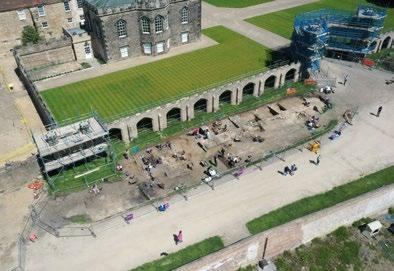
The team uncovered the steps to the tower, which dates from the mid-1300s, and the walls of the cellar, which includes the remains of a ceiling – a barrel vault which would have curved over the heads of those standing on the medieval floor beneath.
Amongst the stone foundations, the dig also uncovered a jetton, or ‘reckoning counter’, dating from 1350-80 which was found in one of the basement rooms of the tower. It would have been used as a counter on a large board to help with addition and subtraction, like an abacus.
Being active is good for both physical and mental health. This is why evidencebased recommendations have long existed to advise people on how much exercise, and what type of exercise, they should aim to get each week in order to see these benefits. But for years, these recommendations largely ignored the needs of people with disabilities. This need for evidence-based guidelines has led our team to publish the UK’s first physical activity guidelines for disabled young people aged 2 to 17 years. The recommendations we made are based on scientific research and input from disabled young people.
Based on our findings, we recommend that, whatever their age and disability, disabled young people should aim to do 120 to 180 minutes of mostly aerobic physical activity per week, such as cycling, dance or even trampolining – at a moderate to vigorous intensity. But as the evidence showed us,
this doesn’t need to be done all in one go. Although the evidence showed us that 20 minutes a day was enough to give disabled young people health benefits, that doesn’t mean they can’t do more if they would like to and are able to.
This recommendation is less than the 60 minutes of moderate or vigorous intensity physical activity each day recommended for non-disabled young people. The reason disabled young people may need less activity is because certain disabilities may mean they work harder when active due to differences in their muscle mass or the way they move.
In addition, no evidence was found to show that physical activity is unsafe for disabled young people when it’s performed at a level appropriate for their age and physical and mental function. We also showed that any physical activity is better than nothing – so even small amounts could still bring health benefits.

The team also discovered a silver penny dating from the reign of Henry VI, which was minted by the Bishops of Durham between 1427-30. At the time, it would have been worth a gallon of ale or a couple of dozen eggs.
The tower and bridge have now been covered over with soil in order to preserve their features but work is ongoing to display information and objects discovered so that visitors to the site will be able to see the findings for years to come.
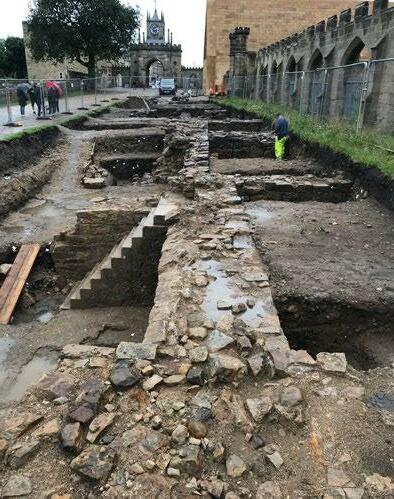
Issue 08 2022 Research Update 6 Dunelm
Professor Brett Smith, Director of Research from our Department of Sport and Exercise Sciences, and Dr Charlie Foster, Professor of Physical Activity and Public Health at the University of Bristol, outline the recommendations of the new guidelines on physical activity for disabled young people.
Research Update
Foundations
Aerial view
Tick saliva could ease chronic pain and itching

Persistent or chronic pain is a huge global health challenge, affecting over 20 per cent of the population. It is the single biggest reason that people in the UK visit their doctor and it is recognised as a priority disease by the World Health Organisation.
We’re working on a new drug, based on a protein found in tick saliva, that could ease chronic pain and itching in people. New research shows that the protein – called Votucalis – provided pain and itch relief in research involving mice.
The findings from Durham and Newcastle Universities and pharmaceutical company Akari Therapeutics Plc could lead to a replacement for traditional opioid painkillers that researchers say are largely ineffective, can have serious side-effects and can be addictive.
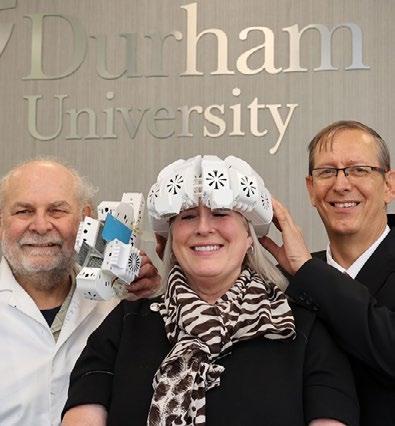
Votucalis is derived from the saliva of the Rhipicephalus appendiculatus tick which secretes the substance into its host when feeding so the host is unaware that they’ve been bitten.
The biologic drug works by binding histamine in the human body, preventing the histamine from activating its four cell receptors. This leads to reduced itching and pain. Conditions that cause chronic pain or itching include atopic dermatitis, psoriasis, arthritis, diabetes, sciatica and back injuries.
The anti-itch and pain relief potential of Votucalis means we could be on the brink of discovering a viable alternative to opioid and gabapentinoid drugs. Unlike opioids –which are morphine-based – the research shows that Votucalis does not enter the brain, which means it is not addictive and less likely to cause side-effects.
Infrared light therapy might aid dementia patients
We’re working on a new infrared light therapy that might have the potential to help people with dementia. People wear a specially adapted helmet which delivers infrared light deep into the brain for sixminutes per treatment. This stimulates mitochondria that generate most of the chemical energy needed to power the biochemical reaction in the brain’s cells.
Our researchers say this can lead to a rise in the level of an organic compound called adenosine triphosphate (ATP), which is markedly decreased in dementia patients, provides energy to drive processes in living cells and helps nerve cells repair.
The therapy can also increase levels of nitric oxide, and therefore blood flow in the brain, by improving the flexibility of the membrane that lines the inside of blood vessels. This opens up blood vessels so more oxygen can reach the white matter deep in the brain.
The helmet can be easily worn by patients, meaning the therapy can be readily delivered at home.
Grandmother Tracy Sloan began using the infrared light therapy helmet to help improve her memory. After wearing the helmet for a few weeks, she said she noticed improvements in remembering simple messages, which previously she would have had to write down or Tracy said she would have forgotten them. She also noticed that her sleep and moods improved.
Tracy, 56, a GP practice administrator from Peterlee, County Durham, UK, is in general good health and has no diagnosed condition that would affect her memory. She wore the helmet morning and night for six minutes each time over a period of three months.
Climate change might make winter bird migration a thing of the past
Experts from our Department of Biosciences think this is a possibility after new research found that some species of trans-Saharan migratory birds, like Nightingales and Willow Warblers, are spending as many as 50-60 fewer days a year in their non-breeding grounds in Africa.
The research was the first to look at how long trans-Saharan migratory birds are spending in their traditional winter retreats in Africa. Using over 50 years of bird records collated by ornithologists in The Gambia and Gibraltar, our experts explored the arrival and departure dates of migratory birds over time. They also related these observed changes to changes in climate and vegetation.
They found that many of Europe’s most common migratory birds are spending longer in their European breeding-grounds;
departing later for sub-Saharan Africa and choosing to return to Europe earlier. This change suggests that the birds are able to survive longer in their European breeding grounds than before, leading experts to question whether some birds may eventually stop their traditional longdistance migrations.
It was previously thought that birds timed migration based on day length, however the findings from this study suggest that birds are also making more nuanced decisions, responding to factors such as changes in climate and available vegetation.
Changes in migratory habits could lead to longer breeding seasons for these species, and have knock-on effects on other species, both in the UK and in traditional winter migration destinations.
“After a few weeks I noticed that my sleeping pattern was better, I felt more relaxed and I had more energy.”

Durham University Alumni MagazineResearch Update Dunelm 7
Dr Paul Chazot, Tracy Sloan & Dr Gordon Dougal
Rhipicephalus appendiculatus tick
Yellow wagtail
Setting the standard for musical excellence
Spring 2022 saw the arrival of the much-anticipated All-Steinway School status for the University. Working in partnership with the globally-recognised piano makers, we welcomed the arrival of 58 world-class instruments, taking us to a total of 61 Steinways and the largest investment of any university in the UK. The beautifully crafted pianos are accessible to all students regardless of their level of experience, both within the music department and across all 17 colleges.

Making music at Steinway
A number of our musically talented students had the rare opportunity to travel to Steinway Hall in London to take part in a prestigious masterclass.
After auditioning to attend the event, the students were delighted to have the once in a lifetime opportunity to play a piece in the wonderful setting of Steinway Hall under the expert guidance of Steinway artist, Charles Owen.
Our Chancellor and world-renowned opera singer, Sir Thomas Allen, accompanied the group. The masterclass will become an annual event, creating the opportunity for a selection of new students to participate each year.
Issue 08 2022 Alumni 8 Dunelm
Steinway
delivery into the music department
“I had the wonderful opportunity to participate i n the Steinway Masterclass... Charles Owen’s superb enthusiasm and the... invaluable insights given helped me to better capture the essence of the peice, beyond the written scores”
Risako Takamura, Law student
Behind the scenes
Early Spring saw a group of students and staff take a trip to the Steinway factory in Hamburg, Germany. Students were able to see the manufacture of these wonderful hand-made instruments that are four years in the making – three in naturally drying out the specially selected timbers and one year to produce. They were in the enviable position of trying them out and choosing a piano for their college. This was an amazing experience for a variety of reasons – one student hadn’t been on a flight before, whilst others marvelled at the skill in the manufacturing and the distinctive sound from the Steinways.
Early arrivals to the Bailey
Wednesday 20 April saw the arrival of 23 Steinways to Chad’s, Cuth’s, Hatfield and John’s colleges and the Music Department. Ten pianos were craned into their new homes! Cue - excitement, lots of spectator interest, holding our breaths and a sigh of relief!...
Concert day
April 27 will go down in Durham history as an epic day when 28 Steinways played in concert in the Mount Oswald Hub. The quality of the sound and experience felt by the audience was unparalleled. The concert featured original music by undergraduate Music student, Liberty Richardson. Liberty
composed her piece specifically for the event, having won a competition to do so.
The star of the show was Steinway’s new Spirio – marrying the best in technology with expert craftsmanship to create a truly remarkable piano with the ability to record and playback the artist’s recording.
This amazing piano will reside in the Music Department and will give students the opportunity to listen to their practice immediately after playing, helping to develop their skills as a musician. The Spirio is a fabulous addition to the University, made possible due to the generous donation of Graham and Joanna Barker.
Community
With the arrival of the new Steinway instruments, we have been able to donate 18 pianos to local community groups.
One donation is to local Arts and Mental Health organisation and existing partner of the University, RT Projects who specialises in suicide intervention.
The gift of the piano “will open up a whole new world to people we work with, enabling them to have a voice they never knew they had.” Beano from RT Projects.
Another donation is to local community Arts organisation Enter CIC that focuses on widening participation, working with young people from age 4-25, and working with the elderly within our community.
“…affording new musical instruments always provides a significant challenge for community organisations such as ours. Therefore, receiving this piano is a true gift and we look forward to this gift inspiring young people, and performers in our community both as audience members and artists. The piano will definitely be well used and I look forward to hearing our hall full of beautiful melody.” Andrea Flynn, Enter CIC.
The Sir Thomas Allen legacy
“This marriage with Steinway is the perfect combination…I can guarantee to all our students that they will have the best available to them.” Sir Thomas Allen
The initiative marks the end of Sir Tom’s Chancellorship with the University – leaving a world-class legacy behind for future generations of young musicians. Funding for the project has been possible with the help of donations and the University. Thank you to all those who have donated already. If you would like to support the
Sir Thomas Allen Appeal by contributing to the fund, please contact Dr Katie HarlandEdminson at katie.harland-edminson@ durham.ac.uk

Durham University Alumni MagazineAlumni Dunelm 9
Concert
at
Mount Oswald
Hub
“The concert was a truly unforgettable moment in my composing career, and I will be forever thankful for being given this opportunity.”
Liberty Richardson, Music student
Daisy Hill
In 2013, she co-founded her first company in 2013, Useful Music, a startup that provides original sheet music downloads tailored for learners and their instruments. Further experience at both Reward Gateway and Eventbrite inspired Daisy and ignited a passion for scaling businesses and motivating the team around her.
However, it wasn’t until she gained experience working in schools herself that she identified the desperate need for students of all abilities and behaviours to be afforded the personalised teaching they need to reach their highest potential. The marriage of Daisy’s commercial experience and aptitude coupled with this new insight into the education sector set her on a new path…
One of these B2B products is My Quizalize, a service that enables businesses and publishers to completely white label their content in a secure, sandboxed environment. Offering a new channel to digitise and monetise a company’s content, My Quizalize turns print resources into a web-based app, allowing companies and publishers to expand their reach - and their bottom lines.
Education is at the heart of everything Zzish and Quizalize do. Teachers and students will always be Daisy’s greatest focus, and with thousands of teachers joining the platform every day, the impact of Quizalize on student learning and attainment is only increasing.
From emerging markets like the Philippines to established markets such as the US, Quizalize is a trusted and treasured resource for teachers the world over.

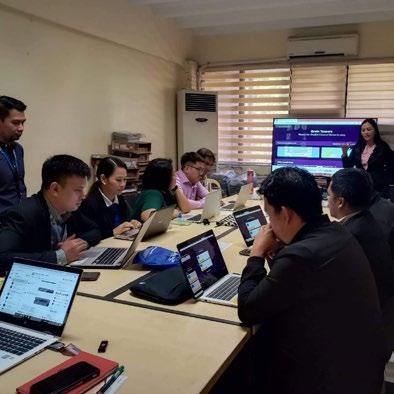
My Durham story
Alumni Daisy Hill
We are always keen to follow the careers of our alumni community, particularly when they are sharing impactful EdTech solutions with students around the world.
Durham alumna Daisy Hill is doing just that. Co-founder and COO of Zzish, a smartdata platform that uses fun and engaging quizzes to facilitate formative assessments, Daisy is making ripples in the EdTech space by pairing learning resources that students want to use with micro and macro level Mastery Data. The result? Real-time data that teachers can use to inform and implement differentiated and personalised learning to every student.
Daisy can also boast being behind the wheel of the largest crowdfunding raises (£3million total) of any EdTech in the UK.
An average secondary school teacher can teach 250 different students each week. Through her own personal experience in the classroom, Daisy knew that keeping on top of each student’s individual progress and matching them with the best learning resource for their learning style was no easy task.
Daisy’s solution to this common obstacle teachers around the world face? Quizalize.
Quizalize is a fun and engaging quiz platform that teachers can use both in the classroom and to set homework. As each student completes their quiz (which is tagged to the country, district and subject’s curricula), their real time data feeds into the smart-data engine.
On a micro level, teachers can see in real time how each student is performing, what questions they are getting right and wrong, and what learning objectives need more attention. On a macro level, headteachers can see a full picture of how their students, classes and overall school are performing. This valuable insight has never been seen before. And now it can be used to provide immediate insights that help every student reach their full potential.
Quizalize is offered on a Freemium commercial model, meaning that every teacher, everywhere, can access the powerful platform for free. When teachers upgrade to the premium version, they unlock additional features and functionalities, further enhancing the level of personalisation and differentiation they can bring to their classrooms. Additionally, the cost of the premium upgrade is marketadjusted and market-appropriate, offering an always affordable resource to teachers. For Daisy this is a very important policy to maintain, as the promotion of educationequity is at the heart of Zzish’s mission and commitment to teachers and students around the world.
Daisy has maintained a strong relationship with our alumni community and we could not be prouder and more supportive of her venture, which is already reaching 6 million learners in 170 countries.
After graduating from Collingwood College in 2009, Daisy spent a period of time in the commercial world of technology.
Quizalize has a B2B offering too, offering multiple B2B products and services, already adopted by many global companies.
We are so proud of the impact our alumna Daisy is making in the lives of millions of learners, globally.
Daisy’s overall vision for Zzish is to provide an EdTech solution that is socio-economic agnostic to all students around the world, fulfilling the company’s founding mission: to bring quality education to all students, through giving teachers superpowers.
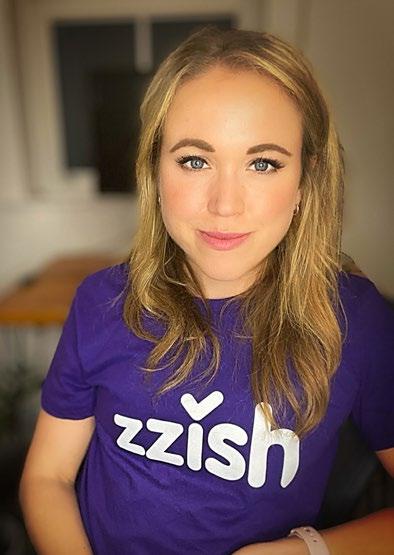
Issue 08 2022 10 Dunelm Alumni
(History, Collingwood College, 2006-9) Education: give teachers superpowers and students will soar Daisy Hill
Zzish in use in class
Click here for more information
Making a difference
Having grown up in Moss Side, a tough area of Manchester, surrounded by poverty and experiencing racism, Dr Shaid Mahmood, our new Pro-Vice-Chancellor for Equality, Diversity and Inclusion (EDI), knows first-hand the positive impact higher education can have on people’s lives.

A first-generation graduate with a love of science, Shaid studied Chemistry at Lancaster University, followed by a PhD in Polymer Chemistry at Sheffield University. After a career in the chemical and manufacturing industry, a career change followed. Wanting to make a difference to people’s lives, he spent the next 15 years working in various public sector roles, more recently as Chief Officer for Communities and then Chief Officer for Transformation and Change at Leeds City Council.
In this interview, Shaid tells us more about himself and what he has been busy doing over the last few months since he joined us in February.
How have you found the first few months at Durham?
“I have been really impressed so far. I’ve been busy meeting and listening to colleagues. Everybody has been really generous with their time and I have learnt a lot.”
What attracted you about the role and working in Higher Education?
“I was ready for a new challenge when this opportunity came along. Being a governor of a high school and a college, I was familiar with the education sector. During my time in local government, I engaged with universities and recognise the difference education makes to everyone.
“It was clear that Durham had reached a point in its journey as an institution where it realised some things had to change in order to help people feel they belong in a university environment. I recognised I could bring skills and capabilities that could help people on that journey, and it felt like the right thing to do.”
What are your priorities for the next few months?
“There’s a lot of really good EDI work going on across the university and we need to find a way of surfacing that. Sometimes the complexity of EDI work can put people off. So one key task is simplifying things, de-mystifying it and helping people to make sense of it. When it comes to EDI, most people just want to do the right thing and want help to do it.”
How have you found County Durham?
“Before I joined the university, my circle of friends and colleagues were constantly telling me what a beautiful city and county it is. I’m also excited that I’ve come to a university where they’ve applied for City of Culture status. I’ve been involved with
a couple of bids prior and it’s great to see we’ve got that ambition at Durham.
“I’m particularly interested in mining traditions. I’ve spent the past decade and a half in former mining areas, and I’ve coached football in ex mining villages, so I’ve a huge amount of empathy for the industry.”

What is the best bit of advice you have been given?
“I have two. Firstly, seek to understand before you seek to be understood yourself. I spend a lot of time listening to people and testing ideas. It’s easy to make assumptions about individuals and organisations, and the motivations that people have.
“And secondly, always have an elevator pitch ready – if you’re in a lift to the 10th floor with the Chief Executive, what are you going to say? Be ready to pitch your idea. I was given this fantastic advice and did exactly that. I came up with a concept about leadership which was adopted not just by the organisation but also by the partners and stakeholders that we worked with.”
What is your proudest moment?
“Personally, seeing my three children achieve in their key moments of transition and for them to define success for themselves and feel great about themselves.
“Professionally – I’ve had a number of career highs and been given a number of accolades and awards on my journey. But the one that stands out the most is the work where I’ve been able to help people who are in real need and received a simple thank you. That’s what makes me feel like I’ve actually made a difference.”
Click here to watch the full interview
Durham University Alumni MagazineNews Dunelm 11
Shaid (front row, centre) enjoyed playing football growing up and later, coached football teams
Dr Shaid Mahmood
“Simplifying EDI is really important because if we are not careful the complexity of initiatives can sometimes be a barrier to progress.”
Inspiring the great journalistic minds & leaders of tomorrow

Issue 08 2022 Feature 12 Dunelm
Harry Evans Scholarship
The Sir Harry Evans Memorial Fund will create two complementary programmes in honour of the former editor of the UK’s Sunday Times, Reuters editor-at-large and Durham University alumnus.
Sir Harry 1968
In a landmark partnership between Durham University and Reuterssupported by Tina Brown CBE and family - the Sir Harry Evans Memorial Fund has established a prestigious Fellowship in investigative journalism, hosted in partnership with Reuters’ senior investigative and editorial teams, following a competitive award process.

The Fellowship provides an unrivalled opportunity for an exceptional early career journalist: a six to nine month Fellowship with Durham University which will include undertaking an investigative project from inside the Reuters newsroom in London, mentored by top Reuters editors in the field while being overseen by Durham University and having access to University academics and research resources. This Fellowship is designed to give the applicant the chance to develop rigorous, fact-based research and reporting skills.
The successful applicant will be employed by Durham University for the period of the Fellowship and will spend time on placement in the Reuters newsroom in London, or with another suitable partner selected by Reuters. The successful applicant will also be allocated an appropriate academic supervisor and mentor at Durham University.
About Sir Harry Evans
Sir Harry (Harold) Evans (1928-2020) was voted by his media peers the Greatest British Newspaper Editor of all time. He set the gold standard for journalism in the public interest, championing causes overlooked or denied. His work was distinguished by rigorous truth-seeking, campaigning tenacity, and presentational flair.
The son of a train driver, he began his 70-year career in North East England. Sir Harry became internationally acclaimed as editor of the Sunday Times from 19671981 under the paper’s ownership by Lord [Roy] Thomson, of whom Sir Harry said, “It was not simply a question of editorial independence being absolute and unthreatened under Thomson, father and son; it was celebrated.”
One of Sir Harry’s greatest triumphs was his ten-year campaign to win compensation for the victims of the morning sickness drug Thalidomide, which had inflicted thousands of birth deformities.
“Harold Evans was an epic of decency, courage and moral determination. His career is a supreme reminder of the indispensability of fearless journalism to a democracy grounded in truth.”

Others include exposing the cover-up of Britain’s intelligence services in the case of double agent Kim Philby; the unmasking of the corporate deception at the heart of the DC-10 Paris air crash in 1974 and the June, 1971 expose by Anthony Mascarenhas of the Pakistani army’s brutal massacre in its effort to suppress the Bangladeshi uprising, considered one of the most influential pieces of journalism ever written about South Asia.
This story and Mascarenhas’s reporting doubtless helped end the war by turning popular opinion against Pakistan.
Sir Harry and Durham University
For all of his adult life, Sir Harry was a senior ambassador and highly engaged member of Durham University’s senior alumni community.
In 1949, having achieved entrance as an undergraduate to University College, Durham – also known as Durham Castle, a universally important landmark built in 1072 – he became a contributor and later editor of Palatinate, the University’s independent student newspaper through which he honed his skills and passions for a lifelong career at the helm of global journalism.
In 1998, he received a prestigious Honorary Doctor of Letters from the University for his services to journalism, presented to him by then University Chancellor, Sir Peter Ustinov. A proud ‘Castleman’, Sir Harry returned on numerous occasions to lecture and mentor students at the University, helping later to relaunch Durham’s alumni and benefactor activities in New York and across the United States whilst Editor-at-Large, Reuters.
 Sir Harry Evans
Sir Harry Evans
Durham University Alumni MagazineFeature Dunelm 13
Sir Harold Evans
Receiving an Honorary Doctorate from Durham 1998
Simon Schama
Historian writing for TIME Magazine
“Durham was crucial for me... you would sit at dinner next to a Physician, a Musician, people from other subject areas and talk. There was a collision of all different disciplines. By talking, you were already better educated.”
Click here for more information
Lumiere
Celebrating County Durham’s cultural heritage
We’re celebrating the proud cultural heritage of County Durham by supporting an exciting programme of cultural projects and activities over the next few years. County Durham was recently shortlisted for the UK City of Culture title for 2025 and although we narrowly missed out, working on the bid has helped forge even stronger relationships with culture partners, providing a catalyst for exciting future collaborations.
Durham University is an integral part of the cultural vibrancy of County Durham. We have been part of the city for 190 years and our campus hosts some of Durham’s most historic, and most innovative buildings. We have staff and students from over 150 countries, sharing their rich mix of cultural heritage with the community through societies and events. We are home to world-class museums and collections and are committed to sharing these with the community, through regular exhibitions and events. Amongst the hundreds of sport, theatre, music and art societies across the University, are many which perform and exhibit publicly.
We were excited to welcome back the Lumiere light festival, and see the city transform into an immersive, nocturnal art gallery. Amongst the 37 installations were 3 sponsored by the university, lighting up some of our newest, and most historic buildings.
Visitors were able to explore the concept of time, from the nanosecond to millennia, with a video-mapped installation entitled Chronos, which was on our Ogden Centre for Fundamental Physics.

St Mary’s College, one of our oldest colleges, joined the Lumiere line-up for the first time. Hosting Scattered Light by artist Jim Campbell, the terrace of the college became a bewitching illusion of moving figures created by over 1,500 LED bulbs.
Finally, our most historic building, Durham Castle, home to University College, was illuminated with new works from 11 of the UK’s most exciting poets, including Kayo Chingonyi, an Associate Professor in our Department of English Studies. The piece was entitled Anthology-Into the Light.
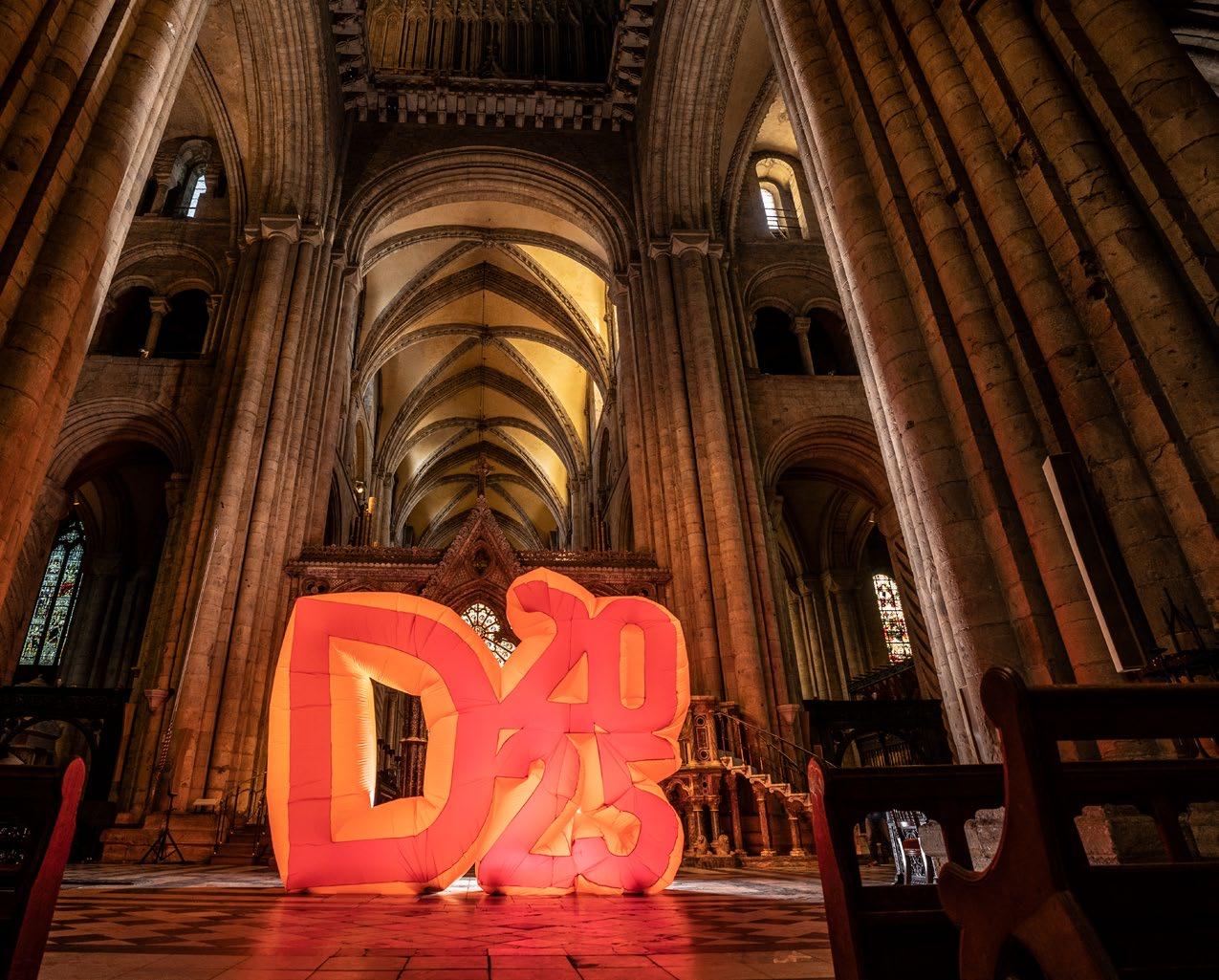
Issue 08 2022 Research 14 Dunelm
The inflatable artwork is a piece by artist Steve Messam.
Historic Cosin’s Library opens its doors after major conservation work
After being closed for several years, essential conservation work is now complete on the stunning Cosin’s Library.
Between the grandeur of Durham Castle and the magnificence and splendour of Durham Cathedral, Cosin’s Library is a real hidden treasure, located at the heart of Durham’s World Heritage Site, within the beautiful Palace Green Library building.
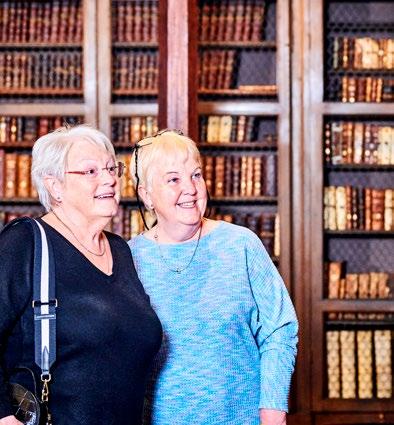
Commissioned by John Cosin, Bishop of Durham from 1660 to 1672, the library was built before 1669, and the extensive book collection was developed over many years by Cosin and his successors.
Above most of the bookcases are painted portraits of theologians, philosophers, historians and classical authors, which informed users about the subjects of the books shelved underneath. Painted by Jan Baptist van Eersel, an otherwise unknown Dutch painter, the portraits are based on illustrations from books still in the library.
Guys & Dolls

Durham University Light Opera Group (DULOG), brought its annual blockbuster musical to the Gala Theatre this January. The annual production is a staple in the city’s theatrical calendar and a highlight for the student company. This year’s production of ‘Guys and Dolls’ involved a team of more than 70 students, making up cast and crew.
Frank Loesser’s golden age musical is a story of love, loyalty, and gambling in 1950s New York. DULOG President, Miriam Templeman, explained: “This last year has been a gamble, and we decided the comedic and joyous heart of ‘Guys and Dolls’ would provide a memorable and entertaining evening of escapism for our audience. We were originally planning to stage the show last spring, so it is a privilege and honour to be able to do so now. It reminds us what a delicate and beautiful living medium theatre is – the spotlights that illuminate the stage can now illuminate our lives, once more. What a gift that is.”
DUOS to perform Shostakovich 10 at Sage Gateshead

Durham University Orchestral Society (DUOS) will be returning to Sage, Gateshead on Sunday 19 June for what promises to be a breath-taking evening of great symphonic music. The power of an eighty strong symphony orchestra made up of our talented student musicians, will bring the concert hall to life.
The concert will begin with Zemlinky’s Sinfonietta, before journeying to the studies of Hollywood in Korngold’s Violin Concerto in D major, with soloist Jamie Frost. The orchestra will then conclude with Shostakovich’s exhilarating Symphony No.10, a piece written in criticism of the oppression of the Stalinist regime.
This programme is designed to excite, with the immense power of the Shostakovich and the virtuosity of the Korngold concerto. As soloist Jamie Frost explains “The Korngold has it all. The lyrical first movement, the beautiful second movement, and the electric final movement. While definitely a technical challenge, it is my favourite concerto and great fun to play.”
Proud to be off to the Edinburgh Fringe
Durham Student Theatre are delighted to be travelling up to the Edinburgh Fringe Festival from 5-29 August. They will be featuring several productions created over the last two years including Leaves on the Line and A Single Lady.
Durham University Alumni MagazineResearch Dunelm 15
“Durham Student Theatre provides you with so many opportunities to let you grow as a creative. From videography to costume-making, there’s always a community or a company to demonstrate your talents.”
Lamesha Ruddock, DST President 2021-22
The Sage, Gateshead
Guys and Dolls 2022
Visitors to the library
Working together to achieve environmental sustainability
Climate change is now widely agreed to be the most significant threat facing the world today. The Intergovernmental Panel on Climate Change (IPCC) recently issued the stark warning that only a “now or never” dash to a low-carbon economy will give us a chance of limiting future heating to 1.5 degrees above pre-industrial levels.
We all have a part in achieving environmental sustainability, universities included. Friday 22 April was the annual Earth Hour and from Thursday 28 April the ways universities are making a difference are being highlighted through the ‘MadeAtUni: Climate Action’ campaign.
Here at Durham, we are making significant progress in this area. We have a dedicated Energy and Sustainability Team which coordinates environmental initiatives, aided by staff environmental champions and student representatives.
Each year we run the Green Move Out scheme, which allows students to donate unwanted items to charity; a MyGreenspace app allows our staff and students to log environmental activities; and last year we launched the Greenspace Festival – a nowannual opportunity to raise awareness and share ideas.

We hold the highest status in EcoCampus, an environmental management scheme for colleges and universities, and were recently ranked in the top 30 in the People and Planet ‘Green Universities’ league.
Our recent new buildings, the Teaching and Learning Centre, Sports and Wellbeing Park at Maiden Castle and our new Mathematical Sciences and Computer Science building, were built to high sustainability standards; and we’ve invested over £6m in supporting sustainable travel around campus, developing new and improved cycle and walking routes.
Our researchers are also leading the way, across various fields of expertise. Our geographers recently shed new light on the vulnerability of the world’s largest ice sheet; our chemists are exploring how to safely and cost effectively remove greenhouse gases from livestock barns; and our bioscientists studying bird movements have warned that climate change may make winter migration a thing of the past, impacting eco-systems both here and in Africa.
However, we are not complacent – we know there is more we can do. We’re working with the Carbon Trust to identify ‘hot spots’ on our campus, developing further carbon management plans and introducing new environmental programmes to equip students and graduates of the future to deliver real change.
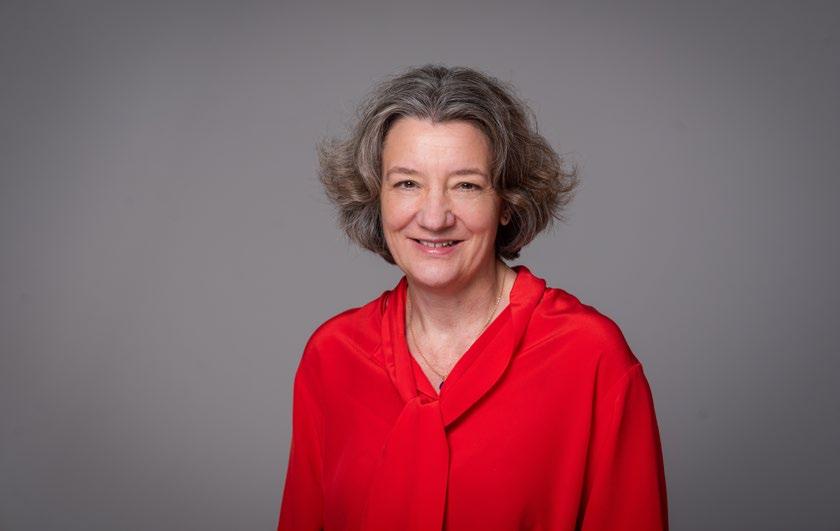
Of course, on such a broad and complex challenge we need to work together. We’re part of County Durham’s campaign to reduce single use plastics and recently members of the UK’s independent Climate Change Committee (CCC) visited Durham to hear about how our engineers are helping the Church of England meet its carbon reduction targets. They also learned more about our Durham Energy Institute, which works across disciplines to ensure sustainable and resilient low-carbon energy systems can be developed which meet the needs of different contexts and ensure fair access for everyone.
We look forward to working with you to achieve a sustainable city and planet we can all enjoy.
Be sustainable and get rewarded, that’s the message for our new ‘My Greenspace’ App In partnership with sustainable software company Team Jump, we have launched a new online platform and mobile app ‘My Greenspace’, where students and staff can log their sustainable behaviours and redeem ‘Green Points’. The purpose of the app is to increase participation by students and staff in the university’s green agenda, with the slogan ‘small acts, big difference’.
My Greenspace enables students, staff and alumni to record sustainable actions listed under a number of categories: Get Involved, Energy & Water, Biodiversity, Travel, Waste and Health & Wellbeing. Under these umbrellas, actions users can complete include everything from measuring your carbon footprint, shopping local or environmental volunteering to reporting your exercise or eating your 5-a-day. Naturally, with the range of actions, points vary- with each activity being worth between 150 and 500 points.
The platform underwent its pilot phase throughout autumn 2021, and within a 3-month period 100 staff and student participants completed 3,000 positive actions, saving around 3,000kg of carbon emissions.
Issue 08 2022 Sustainability 16 Dunelm
Sustainability
Our Vice-Chancellor, Professor Karen O’Brien, explores how we are contributing to achieving environmental sustainability, locally and globally.
Professor Karen O’Brien
Click here to sign up
My Durham Story
Kamal-Deen
I studied New and Renewable Energy (NRE) MSc. at Durham University through the Commonwealth Shared Scholarship and graduated in 2020. I chose to study at Durham because I knew the quality of the teaching would be great as it was ranked as one of the top 100 in the world by the 2019 QS world ranking. Another factor in my decision was that, having been raised in the densely populated city of Lagos in Nigeria, I was really looking forward to spending time in the countryside – during my time in Durham, I often went hiking with my friends, especially during summer.
The inspiration behind the MSc in NRE and the career that followed came the day after my 20th birthday. On 18 April 2013, a local street food vendor tragically died from the fumes of her burning firewood stove. She was a popular and well-respected figure in our neighbourhood and when I was at university, we often used to buy our breakfast from her. This sad news alerted me to the danger that people, particularly women and children, faced when simply cooking food.
This incident and the issues that it highlighted gave me the motivation to study NRE and to play my part in helping to solve some of the challenges faced every day in my own community.
During my time at Durham, I found that my lecturers were genuinely interested in my development - they were always keen to help their students and nothing was too much trouble. This was a very different relationship from any that I had experienced at home and at first, I was a little surprised by the level of care and support that I received. However, I found the support superb, and I believe that this type of relationship really helped with both my academic career and my subsequent business career, because I was encouraged to gain a deep and intuitive understanding of the core issues in the subject. I now try to establish similar relationships with my employees, which I believe is helping to grow my own business more effectively.
The New and Renewable Energy coursework, and particularly my thesis, have provided the practical foundation for my career at Hinata. I also feel that, by successfully completing my MSc, I
have developed my knowledge and can clearly demonstrate my expertise- in fact I managed to secure a consultancy contract with the Economic Community of West Africa States (ECOWAS), largely because of my Durham qualification.
Another advantage gained from my time at Durham is my ability to manage available resources more effectively. As part of my MSc, I had to design an energy system for scientists on Inaccessible Island (approx. 3,000km away from South Africa). The project taught me how to prioritise resources effectively, a skill that is proving invaluable at home in Nigeria, where the challenges are great and resource is limited.
Hinata Energy is a B2B renewable energy startup, retailing safe and affordable biofuel and biofuel-powered cooking stoves. We aim to support communities that had previously relied on high-pollution fuels such as kerosene and wood for cooking, and to reduce the threat to both the health of the community, and the environment. Our biofuel cooking stoves are spill and explosion proof and far safer than a kerosene or liquid petroleum gas cooker. Our biofuel burns without harmful soot, will cook up to 20% faster than kerosene and is 33% cheaper.
Over the next five years, Hinata Energy plans to sell more than 200,000 cooking stoves and 27 million litres of biofuel. This could potentially avoid more than 600,000 metric tons of carbon dioxide every year against kerosene as a baseline.
We launched commercially in July 2021 and are already seeing healthy sales of stoves and biofuel. We have secured a contract to supply 1,000 cooking stoves in student hostels at Kaduna Polytechnic in early 2022, and have successfully signed an agreement with the National Board of Technical Education (NBTE) to place 50,000 stoves across Nigerian polytechnics. This is a massive milestone for Hinata Energy, and it will be an opportunity to scale our business nationally.
Durham Student Named Chegg.Org Global Student Prize Winner
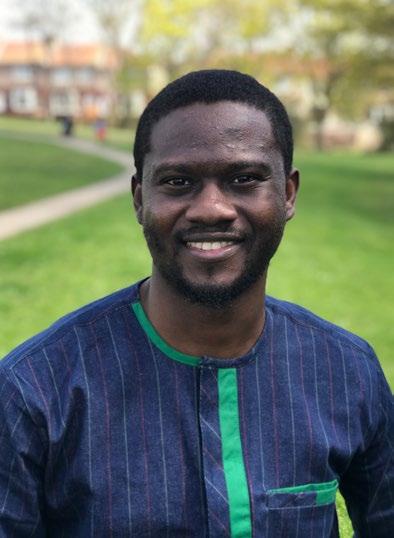
Current student Jeremiah, from Sierra Leone, invented a device that uses kinetic energy from traffic and pedestrians to generate clean power.
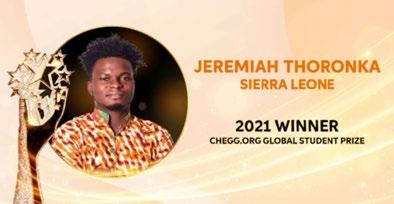
Growing up in a slum camp for displaced people on the outskirts of the capital Freetown, Jeremiah saw how the effects of burning charcoal and wood for lighting and heat were having a detrimental impact on health and children’s progression. At 17, he launched a start-up called Optim Energy that transforms vibrations from vehicles and pedestrian footfall on roads into an electric current, generating power without relying on changeable weather and not needing connection to an external power source.
With just two devices, the start-up provided free electricity to 150 households comprising around 1,500 citizens, as well as 15 schools where more than 9,000 students attend.
Kate Hampshire, Head of Anthropology at Durham commented “We are delighted that Jeremiah has won the Global Student Prize for his amazing work in clean energy. Jeremiah’s inspirational research is reflective of the wider work of many of our students and academic researchers across the University which is helping to meet the challenges faced by the world including putting plastic waste back into use, educating young people in the importance of soil health, and greening cities. It is fantastic to see his work have such an impact and we congratulate him on this amazing achievement.”
The inaugural Global Student Prize is given to one exceptional student who has made a real impact on learning, the lives of their peers and on society beyond and is the sister award to the coveted Global Teacher Prize.
Durham University Alumni MagazineAlumni Dunelm 17
Jeremiah Thoronka, a Postgraduate Anthropology Student has recently become the first winner of a new $100,000 prize which was announced earlier this week from the UNESCO Headquarters and presented virtually by actor, Hugh Jackman.
Kassim (MSc.New and Renewable Energy, Josephine Butler College, 2019-20)
Alumni Kamal-Deen Kassim Click here to find out more
My Durham story
‘Working with children and teenagers, I’ve seen first-hand the difference some directed individual attention can make to their learning and overall wellbeing, but I know that even before the pandemic this was something out of reach for most through private tutoring and greatly lacking in an underfunded and overwhelmed school system. At universities like Durham, students from working class backgrounds remain drastically underrepresented, and in schools the attainment gap between pupils from higher and lower income backgrounds began growing even wider in 2020 for the first time in a decade. Fighting this attainment gap, and barriers to education access globally are two things I feel very passionately about, and it made sense to me to bring them together and create something to advocate education for all.’
Naomi Green
I studied Politics, History and Spanish as part of a Liberal Arts course at Durham. The course was fascinating - and I had an amazing time in my third year in Argentina - but it was my experience outside of studying with the student volunteering programme that really shaped my future! I had had a keen interest in volunteering from my teens, so from my first year at university I joined the CATSS programme (Children Achieving Through Student Support) and spent time working with socially at-risk children in the surrounding
Learning By Heart – ‘Pay as you feel’
area. CATSS volunteers take the children out for day trips and residential visits to provide respite care and new opportunities. The aim was for the children to have fun, try new things and meet new people. It was through this programme that I really began to appreciate the difference that can be made to a child simply by talking to them and listening to their opinions. It was amazing to see them grow in confidence and enjoy trying activities like holding a snake for the first time!
I was fortunate enough to spend my third year in Argentina, where I gained some great experience volunteering with Delicias de Alicia, a social enterprise based in Buenos Aires, that teaches children the value of nutrition and a healthy diet through nutrition workshops. The workshops are funded by a vegetarian restaurant and catering service – this was my introduction to the concept of social enterprise, and that concept, teamed with my observations of the impact that one to one contact had on young people on the CATSS scheme, inspired me to create Learning by Heart.
Learning by Heart is an online tutoring service staffed by volunteer tutors. Instead of offering free tutoring or charging at the going rate of around £30 an hour, Learning by Heart asks for a pay-as-youfeel donation to a supported charity. Initially, I chose to use the donations to support CAMFED (the Campaign for Female Education), an international nongovernmental, non-profit organisation founded in 1993 whose mission is to eradicate poverty in Africa through the education of girls and the empowerment of young women. I chose this particular organisation after reading the alarming UN statistic that two thirds of the world’s illiterate population were women.
Click here to find out more about CAMFED
In September 2021, we held a vote amongst our volunteers and trustees on a second charity to support. As a result, we now donate 50% of our proceeds to ECW
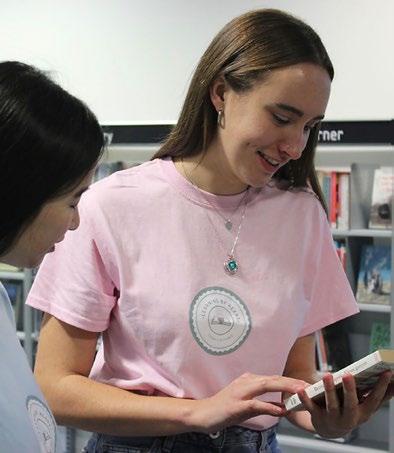
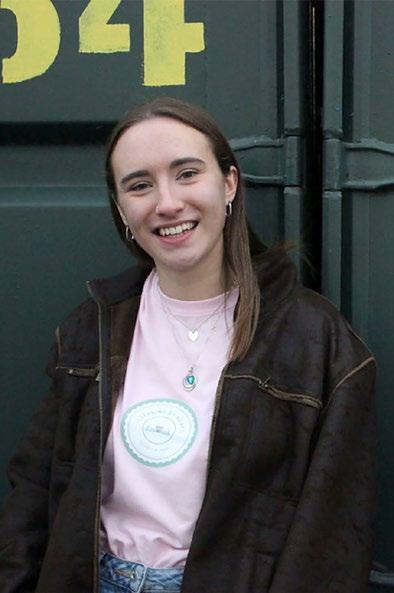
(Education Cannot Wait). ECW is the United Nations’ global fund for education in emergencies and protracted crises, working to improve speed of response in affected areas, and then to connect short term relief with longer term solutions.
Click here to find out more about ECW
With the challenges for parents having to home-school during the pandemic lockdown, we saw a rapid increase in demand for Learning by Heart. In reality, without support from schools, lots of parents really struggled to bridge the gap in their children’s education, they were often lacking time, ability or resource, and Learning by Heart became a lifeline. Donations are collected monthly and can range from a few pounds to hundreds – all gratefully received, and all passed on to the two charities to help continue their work.
Learning by Heart has continued to thrive following lockdown, with parents referring to it as ‘a godsend’. Our tutors are definitely our most valuable asset; by donating their valuable time, they are supporting our own community and the attainment of our children, whilst also raising valuable funds for great work overseas.
For further information about Learning by Heart or about becoming a volunteer tutor, email us on
Click here to find out more about learning by heart
Issue 08 2022 18 Dunelm Alumni Profile
contact@learningbyheart.info Naomi Green (Liberal Arts, St Cuthbert’s Society, 2017-20)
‘Learning By Heart…is a Godsend to many, especially in these uncertain times’ Parent
Alumni Naomi Green
Will Donnelly
Alumni
My Durham story
Will Donnelly (History, Van Mildert College, 2012-15)

Lottie; the People’s Care Company

Will Donnelly is the Co-Founder and CEO of Lottie, a digital marketplace that helps families find their loved ones the best care home and at a fair price. The company is backed by leading Venture Capital Funds including Accel and Kindred, as well as global tech executives including Tom Blomfield (Founder of Monzo Bank) and Dave Wascha (CTO of Zoopla).
Families can either use the digital marketplace to connect directly with our vetted care homes, or they can seek further assistance via our free care concierge service, which gives care seekers access to expert support from the moment they start their care home search, right up until move-in day.
Lottie’s mission is to elevate later life. For me, this breaks down into three key things: empowering care seekers, helping build the later living sector of the future, and my personal favourite, to make care homes cool!
I really do believe my time at Durham University, both academic and nonacademic, has had such an influence on my early career and the person I am today. I joined Durham University in 2012 as part of Van Mildert College and graduated with a 2:1 in History.
While I loved my degree, I can’t stress enough that the academic side of university was just one of many factors that made my time in Durham so special. I look back at my time in Durham so fondly because of the friends I made and the experiences I had outside of studying.
One of the best things I did during my time at Durham was launch my first business, Fever Events, alongside one of my closest friends. Together, we grew Fever from a free 100-person event in Fabios to the University’s most successful student events business, with multiple weekly nightclub brands. We sold the business in 2021 and the money I earned helped me get Lottie off the ground.
A lot of business owners and founders today are very quick to criticise education and university in general. It’s not for everyone, which I totally understand and respect, but for me, it was an incredible experience which has gone to positively shape so much of my 20s and a lot of my thinking with Lottie. I will always be the first person to highlight how special a place Durham is and how lucky I was to experience 3 years in this beautiful city.
Of course, I also learnt a lot from my degree! The skills I gained in being able to research an entirely new subject and craft a balanced essay have proven unbelievably useful. The history department always pushed us to look at things from a different lens and to offer new perspectives, based on our research and findings. This mindset has helped me so much with Lottie, especially during the early stages and product ideation. While Lottie is a new concept for the social care industry, it’s a business model that has been incredibly successful in other more established industries, and I’ve taken huge inspiration from other marketplace brands, including the likes of Airbnb, Cazoo and Plum Guide.
I think Lottie’s big USP is that we’re hyper focused on quality over quantity. Unlike other marketplaces in the industry, the care homes listed on Lottie are handpicked and have been vetted by our team of care experts based on their care quality, home culture and ethical practices. From outstanding care ratings and 5* customer reviews to luxury facilities and thriving home experiences, Lottie partners with
the UK’s best care homes that offer an enhanced resident experience and home culture like no other.
This means that care seekers no longer have to spend hours trawling through hundreds of websites, but instead can connect with the UK’s best care homes in seconds.
Lottie’s progress so far has exceeded all my expectations and more. To date, Lottie has supported tens of thousands of families navigating the stressful care system and helped hundreds of elderly people begin their next chapter in their dream Lottie care home. My favourite stat is that less than 0.5% of Lottie care seekers have regretted their care home decision, in comparison to the industry average of 44%. Clearly, we’re doing something right!
We founded Lottie because we felt families in the UK deserved better when faced with the decision of care, but to also inject some much-needed fun and positivity into the unloved social care sector. While the last 12-months have been anything but easy, I couldn’t be prouder of what we have achieved since launching in August 2021.
Success going forward will be much of the same, but on a bigger scale and launching into other markets, geographies, and verticals. Lottie’s latest round of funding will allow us to push ahead on key hires and exciting new developments, including the launch of a retirement living marketplace and several pioneering technology products aimed at elevating later life.
Beyond that, I really do believe Lottie can change the perception of later life and go on to become a global household name, as big as brands like Airbnb and Booking.com. Why not shoot for the stars?
Dunelm 19 Alumni Profile
Click here to find out more
Remembering Ruth First
This year marks the 40th anniversary of the assassination of Ruth First – famous antiapartheid campaigner, writer, journalist and Sociology lecturer at Durham University in 1973. Ruth was working in Mozambique in 1982 while on research leave from Durham, when she was killed by a parcel bomb.
A series of events is planned later this year to celebrate the life of this remarkable woman and her relationship with Durham, led by the Ruth First in the North research group and the Ruth First Educational Trust.
As one of the events planned to commemorate Ruth’s life and legacy, the mural on the side of Ruth First House on Providence Row has been restored and was recently unveiled. The building itself,

now student accommodation, has a direct physical relation to Ruth as a building where she used to undertake political work.
The original plaque and artwork were erected to coincide with the first free democratic elections in South Africa in 1994. The City of Durham Parish Council commissioned the restoration of the mural by one of the original artists Lotte Shankland. It was unveiled by Ruth’s former University colleague Hilary Wainwright and the current Ruth First Scholar Shamiso Zamba.
Michael Thompson, Associate Professor / Deputy Executive Dean (Education) in the Faculty of Arts and Humanities and Chair of the Ruth First Educational Trust, said: “Ruth First’s teaching, research, writing and political activism have inspired many people in Africa and the UK.
“The mural is a vivid memorial to a remarkable woman and a creative symbol of Durham’s commitment to the values that she fought for.”
Memories of Ruth First Quotes from her students
“Of all my excellent professors, Ruth First stood out. I grew up in southern Africa until age 12 and jumped at the chance to take her module on collectives in Tanzania.
“She was not without lingering influence on my life, for instance, in continuous anti-apartheid support and in the topic of my paper for a 2013 graduate-level class, Introduction to Global Health: ‘Recognising Maternal Depression in Tanzania’”.
Catherine Kristiansen, Combined Arts, St Mary’s College, 1975-78
“Ruth would lecture us in the term time and then travel to Mozambique and Tanzania to advise the Government on agrarian reform on research leave during vacations. My understanding is that it was her brilliance in convincing many men in those countries to remain at home rather than signing their lives away to the South African Goldmining industry, that led to her dastardly assassination.”
David Roberts,
Sociology and Politics, Hatfield College, 1975-77
“I wrote and recorded a song called Ruth’s song, which I played with a group of local musicians known as the Law-and-Order Band, an ironic title for a left-wing outfit that performed at benefit gigs for various causes and played at numerous folk clubs in the northeast. To give you a flavour of Ruth’s song, the chorus words are below: Come link your arms all the world round
With Soweto let us unite
For freedom and equality
Together Black and white.
The song was recorded on a cassette called the May Day tape in 1984.
I thought it important to acknowledge the contribution of this white woman in the struggle against apartheid. Women rarely featured in songs remembering their political works.”
Steve Emsley,
Sociology, St Cuthbert’s Society, 1972-75
“She surprised me - she looked so traditional and a bit like my mum, but her politics were inspirational. I was active in a socialist group where it was all ‘academic’, but she grappled with real issues like how to encourage women in Mozambique to take control of their lives.
I kept around political groups but found that real life issues, fighting in trade unions for workers’ rights (and particularly women’s’ in a ‘male’ industry) were what mattered to me, and I think that’s thanks to her.”
Jane Watt,
Sociology, College of St Hild & St Bede, 1976-78
Alumni 20 Dunelm Issue 08 2022
Pictured L-R: Diana Collecott (former Durham University staff and part of the Remembering Ruth First team), Hilary Wainwright (journalist and former colleague of Ruth First), Lotte Shankland (artist of the mural), Shamiso Zamba (Ruth First Scholar) and John Ashby (former member of Durham City Parish Council).
Lasting legacy

The University is proud to honour Ruth’s legacy by supporting the Ruth First Scholarship in partnership with the Ruth First Educational Trust and Durham City and County. Previously the South African Scholarship Fund, after Ruth’s assassination the fund was renamed in her honour and since 1994 has sponsored one student from Southern Africa each year to take up a taught Masters degree at Durham.
Ruth First Scholars are chosen for their active commitment to working for the benefit of their communities, as well as for their academic ability, and develop their


leadership capacity to become inspiring role models for other young people in Africa.
“Ruth First was a woman that showed bravery in fighting against racial discrimination and segregation (apartheid). She believed in equal opportunities for all, and I am a proud product of what she firmly stood for: an African woman, mother, and wife afforded a world class learning opportunity at the prestigious Durham University. A university that has excellent teaching and academic support in a multicultural environment. I hope this scholarship will not only continue but grow to support more students each year to better represent the diversity of Africa.” Shamiso Zamba, Ruth First Scholar
To find out more or support the Ruth First Educational Trust, please contact m.p.thompson@durham.ac.uk or visit ruthfirsttrust.webspace.durham.ac.uk

Durham University Alumni MagazineAlumni Dunelm 21
Click here to find out more
Take off for James Webb space telescope
We’ve played a key role in the development and engineering of the James Webb Space Telescope (JWST), which has begun its journey to the stars. Durham’s scientists will also be among the first to observe the cosmos using the JWST as they hunt for dark matter and investigate early galaxy formation.


The JWST is NASA’s replacement for the Hubble Space Telescope and is the largest, most powerful space telescope ever built.
Our Centre for Extragalactic Astronomy has been involved in the telescope’s scientific development, including the Mid-Infrared Instrument (MIRI), which will probe galaxies and black holes. The centres of many distant and some nearby galaxies, are hidden behind large amounts of dust. At the infrared wavelengths accessible to the JWST, it will be possible to “see through” this dust to study enshrouded black holes and get a better understanding of their role in galaxy formation.
In addition to this, our Centre for Advanced Instrumentation has made some of the optics for the JWST’s Near Infrared Spectrograph’s (NIRSpec) Integral Field Unit instrument.
We’re also part of the global COSMOS-Web programme, the biggest General Observer programme selected for the JWST’s first year of operation.
COSMOS-Web will survey a patch of sky near the constellation Sextans, and thanks to the JWST’s increased resolution, our astronomers expect to see half-a-million distant galaxies.
Together with researchers at NASA’s Jet Propulsion Laboratory, we will lead work to map the scaffolding of dark matter that surrounds these galaxies and has shaped their evolution.
Based on cosmological theory, our Institute for Computational Cosmology has worked on predictions for what the JWST should expect to see. Current research is looking to predict what the ancestors of galaxies like the Milky Way would look like in their infancy, when viewed by the JWST.
And an international team involving Durham will combine the telescope’s high resolution with gravitational lensing – using the gravitational effect of a foreground galaxy to magnify those further away – to look at one of the most distant known galaxies, MACS0647-JD.
Hubble spotted this galaxy forming stars at an astonishingly fast rate, very early in the life of the universe.
At a time when almost everything in the universe was dark matter or hydrogen, these stars “manufactured” the first heavy elements like carbon, nitrogen and oxygen.
We’ll be studying these elements to understand the early phases of galaxy formation at the beginning of the universe and how its stars produced these first heavy elements.
Research 22 Dunelm Issue 08 2022
James
Webb Telescope
Largest ever 3-D map of the universe created
The Dark Energy Spectroscopic Instrument (DESI) has capped off the first seven months of its survey run by smashing through all previous records for three-dimensional galaxy surveys.
We’re proud to be a key partner of DESI and help design and build the new telescope instrument.

Although it is already producing unprecedented outcomes, DESI is only about ten per cent through its five-year mission. Once completed, its phenomenally detailed 3-D map will give scientists a better understanding of dark energy – the mysterious substance that accounts for 70 per cent of the content in the universe and is speeding up its expansion. This will help scientists determine if the universe will expand forever, collapse in on itself in a reverse Big Bang, or rip itself apart.
DESI features new optics that increase the telescope’s field of view and include
5,000 robotically controlled optical fibres. Led by Durham, the fibre-optic system will split light from objects in space, such as galaxies, quasars and stars, into narrow bands of colour and reveal the chemical make-up of objects as well as information about how far away they are and how fast they are travelling.
DESI is also helping our scientists reveal the secrets of quasars, a particularly bright variety of galaxies that are among the most powerful and distant objects known.
The instrument’s data will go 11 billion years back in time, revealing clues about the evolution of quasars and their connection to the formation of galaxies.
Durham University Alumni MagazineResearch Dunelm 23
Congratulations to all our graduating students!
After having to postpone our traditional graduation events for two years, we were excited to deliver a week of Spring Congregation ceremonies in March for our graduates.


A total of seventeen ceremonies including students from 120 countries finally graduated in the magnificent setting of Durham Cathedral, in the company of their families and friends.

These ceremonies celebrated the academic achievements of nearly four thousand students who had already graduated and been awarded their degrees ‘in absentia’ but had their Congregation events postponed due to the Covid pandemic. The ceremonies were the first to be hosted by our new Vice-Chancellor and Warden, Professor Karen O’Brien, who joined the University earlier this year.
We now very much look forward to our second Congregation celebration of 2022 in the magnificent Durham Cathedral as the next cohort make the transition from graduand to graduate and embark on the next phase of their life with Durham’s blessing and support. After their graduation, they will join the global and lifelong alumni community and will go on to achieve outstanding things all around the world, acting as wonderful ambassadors for our University, our city and the region.
Issue 08 2022 Events 24 Dunelm
Professor O’Brien really enjoyed the event and what it signified; “Spring Congregation offered us the renewed opportunity to celebrate all that has been achieved by our students. This is not only in their academic study but also the resilience, determination and adaptation that they have shown in abundance through what has been a very challenging time for us all.”
It’s an honour!
We were extremely privileged to be able to award honorary degrees to five remarkable individuals; they are among the very best in their chosen fields and set an inspiring example to our graduates as they embark on their new lives and careers.

Charlotte Riley
(English Language and Linguistics, St Cuthbert’s Society, 2000-03)
Awarded Doctor of Letters.
Charlotte Riley is an award-winning actress and playwright best known for her roles in ITV’s Wuthering Heights, 2008 BBC journo drama Press, and as May Carelton in hit show Peaky Blinders. Born in Teesside, Charlotte read English Language and Linguistics at St Cuthbert’s Society, Durham University, later studying at LAMDA. Whilst a student here, she was deeply involved in student theatre, including the famed Durham Revue.

She is patron of a number of charities and is the founder of The WonderWorks – an innovative childcare charity and campaign aimed at keeping women and families in the film industry by. In 2020, she launched a permanent WonderWorks nursery site at Warner Bros. Studios Leavesden. The Ofsted registered childcare facility provides quality, flexible care for those working on productions or on the site.
Robert Senior (History and Politics, University College, 1984-87)
Awarded Doctor of Civil Law.
Robert Senior graduated from Durham University with a degree in History and Politics and went on to enjoy an advertising career spanning thirty years. He cofounded the celebrated agency Fallon, before joining Saatchi & Saatchi, eventually as Worldwide CEO.
As one of the world’s leading advertising executives, Senior’s creative thinking helped to define numerous global brands including the BBC, Sony, T-Mobile, Cadbury and Nike.
Robert remains a close friend to Durham as he has successfully chaired the inaugural Durham Inspired Campaign Board for 5 years, during which time the board has raised over £50 million to support the University’s strategic initiatives.


Robert will stand down from the chair later this year. He takes our best wishes and a huge thank you for his contribution. We are currently looking for his successor, who will clearly have huge shoes to fill!
Mike Barton CBE
Awarded Doctor of Civil Law.
Following a thirty-nine-year career in the police force, Mike Barton was awarded the Order of the British Empire (CBE) in the Queen’s Birthday Honours 2019, for services to policing.
He became a police officer in 1980, joining Durham Constabulary in 2008 as Assistant Chief Constable. He was promoted to Chief Constable of Durham Police in 2012, leading Durham Constabulary to four successive outstanding ratings in annual PEEL inspections and the highest crime detection rates in the country. Mr Barton regularly appeared in the media, championing Durham Constabulary’s innovative work practices and advocating for change in drug policy.
Former Chief Constable of Durham Constabulary, Mike Barton, received a CBE for services to policing in 2019 after joining the police force in 1980. He led Durham Constabulary to four successive outstanding ratings in annual PEEL inspections and the highest crimedetection rates in the country.
Benj Sykes
Awarded Doctor of Science.
Benj Sykes is the UK Offshore Head of Market Development, Consenting and External Affairs for the renewable energy company Ørsted.
He graduated in Natural Sciences from Cambridge University and is a Fellow of the Geological Society and an Honorary Fellow of the Energy Institute.

Since joining Ørsted in 2012, he has been deeply involved with Durham University and the Durham Energy Institute both as a member of the DEI Advisory Board and as one of the main sponsors of research on offshore wind energy. He has also created scholarships for students within Durham University Business School, enabling students to interact and work with the renewables industry. He is the UK Offshore Head of Market Development, Consenting and External Affairs for the renewable energy company Ørsted and has a longstanding involvement with the University and our Durham Energy Institute.
Neil Tennant
Awarded Doctor of Letters.
Musician, singer, songwriter and music journalist, Neil Tennant was co-founder of Pet Shop Boys in 1981.
Durham University Alumni MagazineAlumni Dunelm 25
Science
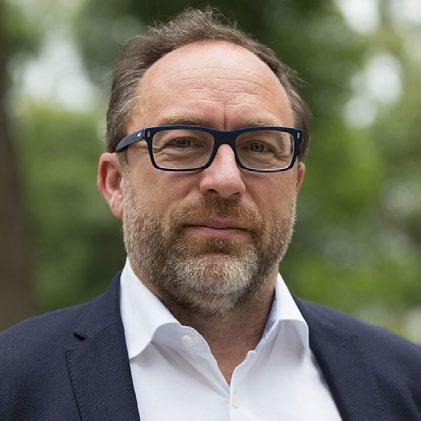
100 moments that rocked computer science
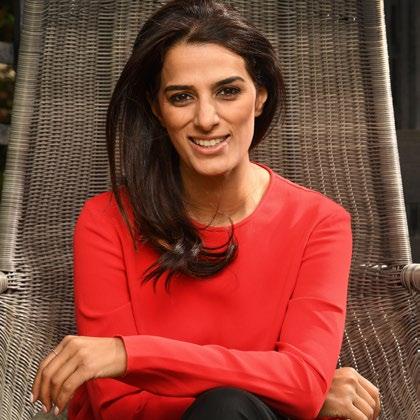

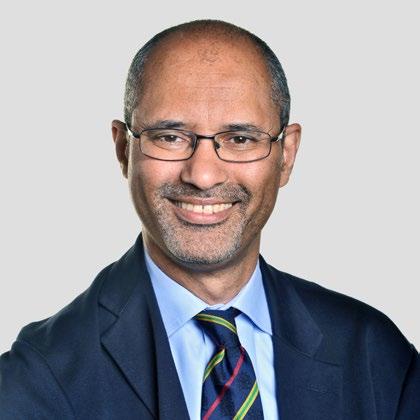
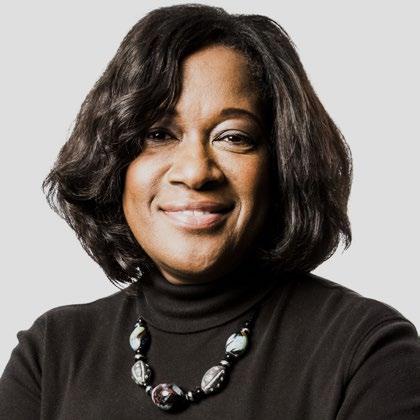
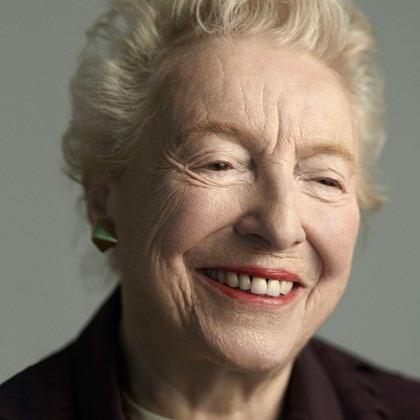
100 Moments that Rocked Computer Science, Professor Sue Black’s podcast which made the Apple Top-10 in its first series, has recently launched series two!
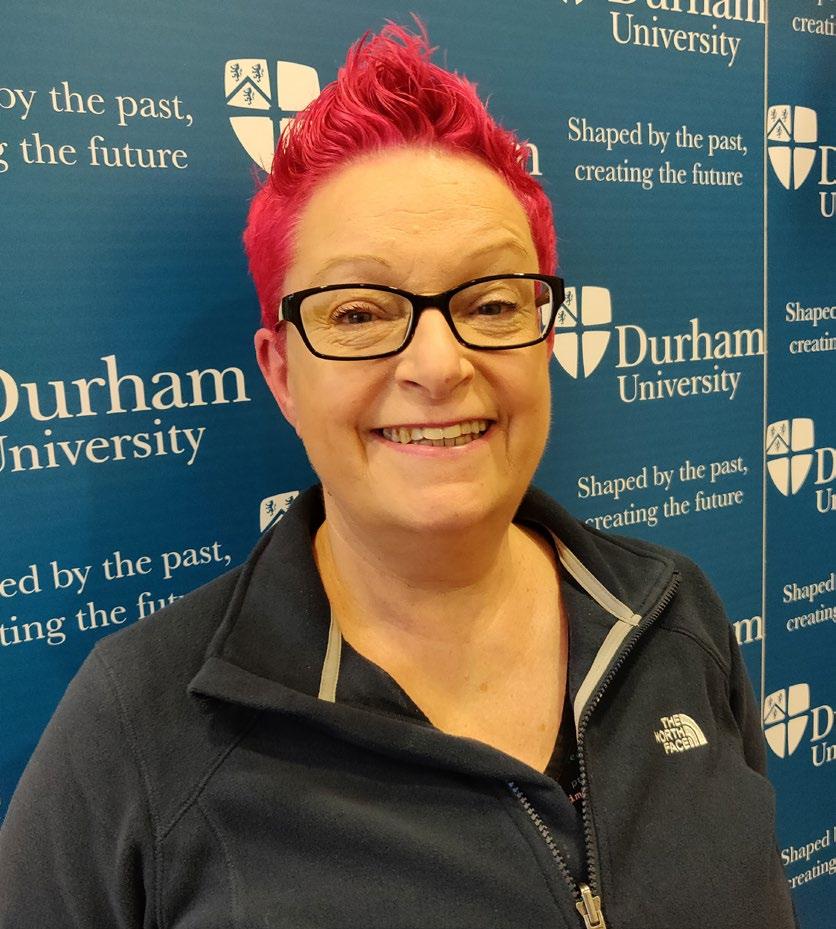
Issue 08 2022 26 Dunelm Science
Dame Steve Shirley
Jacky Wright
Tom Ilube
Professor Sue Black OBE
Jimmy
WalesLopa Patel MBE
Priya Lakhani
OBE
Series two is back, and once again Professor Sue Black OBE is joined by leaders from the worlds of science and technology as they explore more ‘100 Moments That Rocked Computer Science’.

This second series follows on from the success on the first, which saw the team joined by a host of special guests, including Stemettes creator Dr Anne-Marie Imafidon MBE, mathematician, teacher and broadcaster Bobby Seagull, internet search engine pioneer Alan Emtage, and Professor Dame Wendy Hall, one of the world’s leading computer scientists.
Megan Smith, former Chief Technology Officer to US President Barack Obama, and Sir Dermot Turing, nephew of Alan Turing, part of the British team that broke the Enigma code during the Second World War, made up the incredible guest list for the first six part series.
In the second series, Sue once again takes listeners on an entertaining tour of computing history, one ground-breaking moment at a time.
Building on the fantastic success of series one, Professor Black is joined by two Computer Science students at Durham
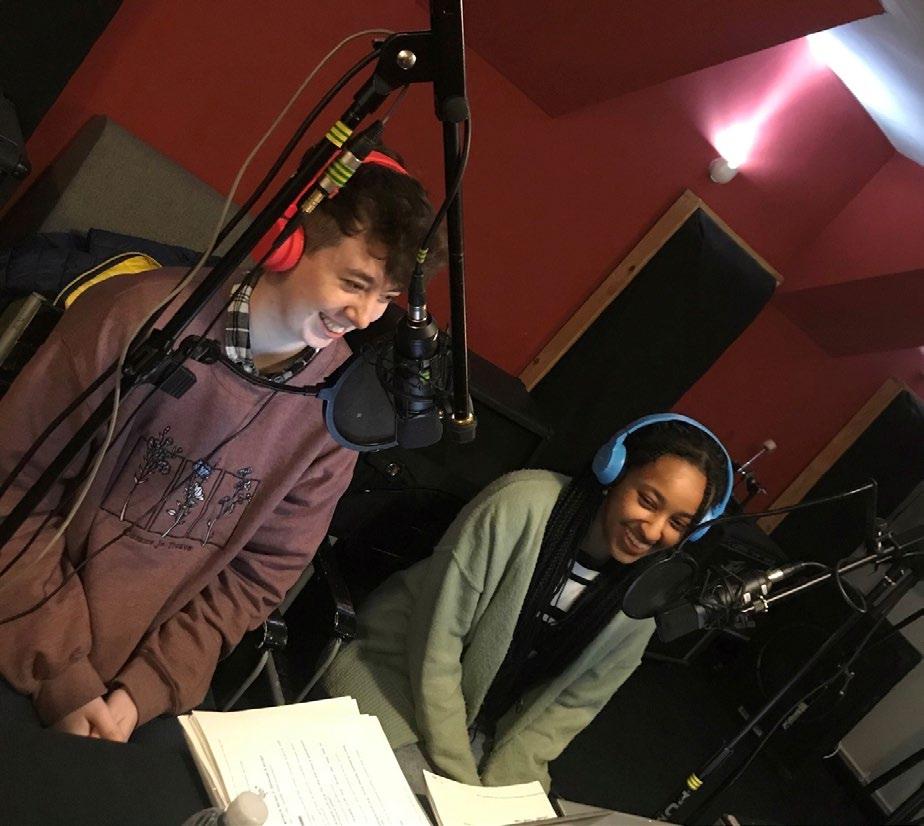
‘
about how we got to where we are, where we would be without these advances in tech and what might happen in the future, Kaal Sahele and Quentin O’Brien.
Each episode, the team welcomes tech pioneers, innovators and computing royalty, as they share the inside story on a range of developments that have changed the world we live in.
The fantastic episodes in series two are:
The birth of quantum computing’ with Tom Ilube CBE, CEO of Crossword Cybersecurity and former CIO of online bank Egg; ‘ERNIE,
‘ The first lottery computer ’ with Dame Steve Shirley, 1960s software pioneer;
‘
The mobile data explosion’ with Jacky Wright, CDO and Corporate Vice President at Microsoft;

‘
MBE, digital entrepreneur and chair of Diversity UK;
‘
The rise of platform disruption’ with Priya Lakhani OBE, CEO of Century Tech; and
The first wiki’ with Jimmy Wales, founder of Wikipedia.
Tune in to listen as they discuss some of the most important computer science innovations and events that have shaped our world, from the birth of the internet search engine to the very first computer programmes and the dawn of the information age.
Dunelm 27 Science
“I absolutely love it! So many reasons to listen in and I can’t wait to hear more. Proper edutainment – both inspired and inspiring.”
Jacqueline de Rojas
“If anyone can convince the world about Computer Science it’s Sue.”
Martha Lane-Fox
Computer Science students
Click here to listen Follow @100MomentsCS on Twitter #100moments
Alumni
Sierra Leone and beyond
 Guy Deacon
Guy Deacon
In November 2019, alumnus Guy Deacon (Anthropology, University College, 198184) was waved off from his hometown in Dorset destined for Sierra Leone in a camper van. His motivation to make the journey was to prove that Parkinson’s disease does not need to stop you from living a full and active life.

This is because Guy has been living with Parkinson’s for the last ten years.
His journey started when he arrived at Durham in 1981. As a fresher, he joined the Durham University Exploration Society and, soon after his arrival, he was already planning the first of three sponsored expeditions to Africa!
Those adventures at university led to a dream that, once his army career was complete, Guy would travel the length of Africa.
The dream became a reality late in 2019. Since being a young man, Guy had always pursued his passion to travel extensively, so was well aware of many of the challenges of the journey ahead. But the real unknown challenge was not the journey, the security or even the weather - all of which could potentially make the trip more difficult - but the effect of his Parkinson’s disease – a challenge which could actually make things impossible.
The initial journey to Sierra Leone went largely to plan. Guy took the ferry from Newhaven, travelled south through France, Andorra, Spain and Portugal, arrived in North Africa in December, and travelled through Northwest Africa, before eventually arriving in Sierra Leone in March 2020. Guy was just considering how to manage the tricky stretch from Sierra Leone round to the equator when COVID-19 reared its head and borders started to shut throughout the continent. Guy was evacuated by the British Embassy and forced to leave his vehicle in the care of somebody else in Freetown, the capital of Sierra Leone. It was nearly two years
before he could resume his expedition, needless to say, with more determination than ever.
Whilst back in England, Guy found that every cloud really did have a silver lining and he met a young film producer who will now be helping him to make a documentary of his epic journey.
Together, they will highlight the harsh reality of living with Parkinson’s and viewers will clearly experience Guy enduring the daily difficulties of travelling, much magnified by the effects of the disease. The documentary will also explore the challenges for those in Africa suffering with Parkinson’s.
Even in the UK, Parkinson’s disease is not well understood and there is currently no identifiable cause or any cure. Symptomatic of the disease are uncontrolled movements such as shaking and trembling. As a result, in many parts of Africa, Parkinson’s is often believed to be caused by witchcraft and sufferers are deemed to be cursed.
On his journey, Guy will visit sufferers of Parkinson’s and those who care for them,
Issue 08 2022 Alumni 28 Dunelm
Guy, you are an inspiration - we wish you well. Good luck!
...Guy found that every cloud really did have a silver lining and he met a young film producer who will now be helping him to make a documentary of his epic journey.
Leaving the UK 10 November 2019
both domestically and professionally. He plans to highlight how many not only live with the condition but are also ostracised within their own communities. They have no access to neurologists, nor do they receive the necessary drugs because they are expensive. Guy is, however, keen to shine a light on the incredible work being done by dedicated health professionals in hard-to-reach places despite limited resources.
With the backing of the charity “Parkinson’s Africa”, Guy’s route has been planned to visit such communities and he will be drawing attention to the help that is available and explaining how to access it. By making the documentary, he aims to provide a platform for those concerned to speak directly about their experiences and about the problems they face every day. He hopes to highlight the often- overlooked realities of Parkinson’s in Africa.
In early 2022, Guy finally resumed his trip and travelled to Freetown, Sierra Leone, to continue on to his destination in South Africa. The western African countries Guy will be travelling through are little known to people in the UK. He is particularly looking forward to going to Benin, Togo and Gabon and relishes the chance to drive through Angola, which for many people is chiefly associated with a brutal civil war. He will pass through some vast and often chaotic cities, but most of the journey will be along the beautiful Atlantic coast. Here there will be everything from idyllic beaches fringed with coconut trees, to primary jungle where the elephants roam on the beaches. Just some of the highlights for Guy will be the

coast of Namibia, where the beach rises to become the grand dunes of the Kalahari, and the southern coast of South Africa where penguins surf in the waves. Africa is a continent of contrasts, and he will be seeing it at its best.


Whilst on his journey, he will be recording each day on the Polar Steps platform and each week he will publish a podcast summarising the challenges, joys and main events of the previous week. Because he is spending most of the time travelling alone, Guy is very keen to have as many followers and supporters back in the UK as possible, as they provide him with company, great encouragement and support when he needs it. To follow his journey, just follow the links below.
Parkinson’s disease is the fastest growing neurological disease in the world, yet still there is no cure. Many families in the UK have been touched by the disease and the outward characteristics are well known. Fewer know what it is really like to have Parkinson’s. Throughout the film, Guy will not shy away from revealing his innermost feelings and revealing to us what it is really like to have the condition. The trip and the documentary are to encourage those living with the disease to follow their dreams, and to raise awareness of the challenges faced by sufferers throughout the world.
Parkinson’s disease is the fastest growing neurological disease in the world, yet still there is no cure.
You can follow Guy

his journey
Polar steps.
Durham University Alumni MagazineAlumni Dunelm 29
on
via
Andorra 24 November 2019 Morocco 19 January 2020 Guinea 26 February 2020 Leaving Europe Gibraltar 12 December 2019Click here to find out more
Alumni
Queen’s new year honours 2022
On the announcement of the Queen’s New Year Honours List 2022, we would like to congratulate and celebrate the achievements of the following alumni and friends who are honourees in this year’s list.
The individuals celebrated below represent the inspiration and leadership that characterises Durham alumni the world over. We are inspired by their success and honoured by their affiliation with our institution.
Ms Philippa D Charles OBE
Theology, Trevelyan College, 1994
For services to Arts, Culture and Community Recovery
Mr Alan Clifton MBE Education (Modular), 1995
For services to Children in Care
Miss Helen E Gibson MBE Sociology, St Aidan’s College, 2000
For services to International Trade
Mr Oliver J Haydon OBE History, St Chad’s College, 2007
For services to European Negotiations
Professor Nicola J Horsley CBE Botany, St Aidan’s College, 1982
For services to Plant Health
Mr Michael P Howes-Roberts
MBE
Biological Sciences, Trevelyan College, 1994
For services to Government Technology, particularly during the Covid-19 Response
Mr Alistair Jarvis CBE
For services to Higher Education, particularly during Covid-19
Mr Mark R Lloyd CBE Business Administration, 2002
For services to Local Government and to Charity
Mr Munir F Mamujee MBE English Language & Linguistics, St Aidan’s College, 1995
For services to Education and Exports
Sir Paul M Nurse
CH DSc Honorary, 2003
For services to Science and Medicine in the UK and Abroad.
Sir William Russell KBE Arts Combined, Grey College, 1987
For services to Financial Innovation, Culture, and Wellbeing in the City of London particularly during Covid-19
Mr Mark A Sealy OBE MBE
Photographic Image, 2008
For services to Art
Mr Michael J Sharrock OBE Arts Combined, Hatfield College, 1980
For services to Athletes with Disabilities
Mrs Margaret E Sidell
BEM Education, College of St Hild & St Bede, 1966
For services to the community in Barton-Upon-Humber, Lincolnshire, particularly during Covid-19
Mrs Rachel S Skinner CBE
MICE Geography, Hatfield College, 1998
For services to Infrastructure
Ms Vivienne Stern MBE
For services to International Education
Miss Krystal A J Vittles
BEM Education, St Mary’s College, 2006
For services to Public Libraries
Sir Nigel D Wilson KBE
For services to the Finance Industry and Regional Development.
Professor Alan Lowdon OBE Business Administration, 2001
For services to UK and US offshore wind collaboration
Lance Corporal Danielle Marie Collingridge-Moore MBE
Geography, St Cuthbert’s Society, 2008 Military division of the New Year Honours 2022, Army Awards category, Promotions in and appointments to the military division of the most excellent order of the British Empire
Congratulations to all our recipients of Platinum Jubilee Honours. For more details, please visit www.durham.ac.uk
Issue 08 2022 Feature 30 Dunelm
Alumni
Dunelmensis awards 2022
The Dunelmensis Award is given by the University’s Senate to a Durham alumnus or alumna for meritorious and exceptional service in support of the University, particularly for institutional advancement and for enhancing the University’s reputation, nationally and internationally.
Zi Qing Yan (Olivia)
(Finance and Investment, Ustinov College, 2007-09)
As founder of the University’s fastest growing International Chapter in Shenzhen, Olivia has also been instrumental in supporting the nearby Guangzhou Chapter.

The Shenzhen Chapter was founded in September 2017 and held its first event with the executive dean of the Business School, Professor Susan Hart. Since 2017, it has hosted high profile events including an alumni reception when Professor Stuart Corbridge was in Shenzhen in 2018. As a result of a successful events programme before the pandemic and Olivia’s more recent activity on social media, the Shenzhen Chapter is a vibrant network to support graduate employability for Durham graduates relocating to Shenzhen from other parts of China.
Olivia also mentored and supported alumni volunteers to create the Guangzhou (Canton) chapter in 2020. This is now a successful International Chapter in its own right and a great example of how the shared experience of studying at Durham can create supportive communities around the globe.
Michael Shearer, OBE (Business Administration, Trevelyan College, 1995-96)
As a passionate and proud advocate of Durham University and Durham University Business School, Michael has significantly contributed to the enhancement of the University’s international reputation and its institutional advancement over a sustained period.
Throughout his tenure of the Singapore Chapter, Michael has been instrumental in building engagement with key campaign prospects as well as sharing his own network to further the reputation of the University internationally. In addition, Michael has contributed significantly to the University’s employability agenda by dedicating hours to mentor current MBA students at Durham University Business School.

Michael has demonstrated exceptional adaptability and resilience during the global pandemic by offering opportunities for alumni and supporters to stay connected whilst remaining safe by offering his time as a keynote speaker for the Live in Lockdown programme.
Michael also supports student recruitment efforts, having featured in the latest postgraduate prospectus with a testimonial he provided. As well as supporting key objectives of the University’s strategy, Michael also acts in an advisory capacity to the University as and when required.
Dr Robert W Banks (Doctor of Science, 1995)
Dr Robert (Bob) Banks has a long and successful history with St Cuthbert’s Society and Durham University. He was a lecturer on Zoology and a major contributor to preclinical medicine at Queen’s Campus, Stockton. His retirement in 2013 was marked by an international symposium held in Collingwood College, with support from the Biophysical Sciences Institute. Following retirement, he has continued to be active in researching the sensory innervation of skeletal muscle.
For many years, Bob was also a tutor and acting Senior Tutor at St Cuthbert’s Society. Since 2014, he has been the Chair of St. Cuthbert’s Society Fellows and has been the inspiration and guiding force behind the development of the Fellows. Throughout this process, Bob has provided significant leadership and activity over a sustained period which has not only enhanced St Cuthbert’s Society but also the University’s reputation nationally.

He has organised impressive events and public lectures attended by hundreds of people from the local community and created succession plans to ensure the continued future of the Fellows at the Society. He has been extremely generous with his time, not just in the planning and delivery of the Fellows programme, but also in his enthusiastic engagement with participants who attend.
Bob has provided exceptional service to both the University and St Cuthbert’s Society, and we congratulate him on his award.
Durham University Alumni Magazine Dunelm 31 Alumni
Happy anniversary!
In the year of the Queen’s Platinum Jubilee, life in our colleges has bounced back even stronger than ever after the lifting of restrictions. Annual college events returned at the end of Michaelmas Term and were a great opportunity for our college communities to come together and celebrate.
Within the last year, there have been a number of special anniversaries within our colleges community. Some of the younger colleges have been celebrating - Josephine Butler College marked 15 years and John Snow and Stephenson Colleges recently celebrated their 20-year anniversaries with a joint formal in the Mount Oswald Hub Hall.
Three of the colleges are reaching milestone anniversaries and are choosing to mark the occasions in very different ways.
College anniversaries
Collingwood College is celebrating its 50th anniversary with a series of events, starting with a launch dinner in London on September 10, then a programme of reunion dinners from October this year to April 2023.
St Aidan’s College are currently developing a plan to celebrate their 75th anniversary with events suggested by their alumni – so watch this space!
Hatfield College is choosing to celebrate its history through ‘Lions on the Bailey’, a large-scale immersive performance specially commissioned to mark the 175th anniversary of its founding in 1846 by David Melville.
Keen that this historic anniversary be celebrated on stage, Hatfield Master Ann MacLarnon invited established playwright and writer Mike Elliston to spend academic year 2021-22 in residence as a Visiting Fellow in Creative Writing. This has given him the opportunity to research both the wider university and Hatfield College history, consulting staff, students and alumni, whilst experiencing Hatfield’s diverse culture and student activity embodied in its ethos #AllOneHatfied.
In collaboration with a team of students, he has co-written and curated a unique event featuring the comedy drama ‘Lions on the Bailey’ and three mini dramas set in the college Chapel, The Birley Room and the SCR Dining Room, dressed as it originally was, as an 18th Century Inn, The Red Lion.


The main event has been designed to be performed in the shadow of the Cathedral on the college tennis court, transformed into an outdoor theatre space and auditorium.
Alongside original, student-created music and dance, an anthology of recorded oral reminiscences has been created from across the generations, drawn from both alumni and staff.
Issue 08 2022 32 Dunelm
Events
BRI Dialogues
If you are interested in the growing global role of East Asia and would benefit from a fuller understanding of the role of China and the Belt and Road Initiative (BRI), you will find these conversations especially useful to your work.
Published on our YouTube channel, the BRI Dialogues are discussions, that provide support and insights for senior executives and decision makers in both private and public sectors, on China and its BRI programme of activities. They aim to establish a clearer appreciation of how to ‘COPE’ in China.
The BRI Dialogues can help… Professor Anoush Ehteshami’s al-Sabah Programme, within the School of Government and International Affairs, is delighted to announce the launch of a new project, BRI Dialogues, in partnership with 3Sixty Strategic Advisors.

[COPE – how to deal with Complexities; capitalise on Opportunities; understand her return to Power, and brace for the impact of Externalities of China.]
The BRI Dialogues are conversations focused on substance and issues that matter. They are a series of conversations with key decision shapers deciphering complexities, risk and horizon scanning for opportunities
Each episode features an expert with years of valued experience. If you have any questions or would like to discuss this project in more detail, we would love to hear from you. You can get in touch or view BRI Dialogues here: bit.ly/BRIDialogues
“BRI Dialogues has provided us with the intellectual and digital space for critical discussions on China’s role in the modern world. Working with a partner from the private sector has provided opportunities for our students to engage and learn about research dissemination and the value of public-private partnerships.”
Durham University Alumni Magazine Dunelm 33 Events
Would you like to understand the changing business landscape in Asia a little better?
Professor Anoush Ehteshami
Professor Anoush Ehteshami
Click here to get in touch
Class notes
news from the past year
Dr Karen Aplin (Natural Sciences, Trevelyan College, 1994-97) is the 2021 recipient of the James Dungey Lectureship of the Royal Astronomical Society.
Dr. Nikolaos Antoniou (Mathematical Sciences, University College, 1991-94); ‘Cloud Walk with Me’ exhibition of collage work, The Green Door Gallery, Brussels, March 18 – April 3, 2022.
Sahar Arfeen (Business Finance, Stephenson College, 2001-05) has co-founded Petite & Vert to empower families to live more sustainable lifestyles.
Autistic duo Harriet Axbey (Research Methods, Stephenson College, 2015-19) and Jonathan Raiseborough, have created a children’s book called My Brother Tom Has Superpowers about their experiences to help other autistic people.
Alumnus Arnab Basu (Physics, Ustinov College, 1999-03) the chief executive of Sedgefield-based Kromek Group plc has been honoured with the highest accolade bestowed by the Institute of Physics (IOP), an honorary fellowship.
David Breeze (Modern History, University College, 1965-70) has been awarded the 2021 Kenyon Medal for his outstanding international contribution to the archaeology of the Roman Empire.
Yvette Clark née Jackson (Modern Languages, University College, 1991-95) debut novel, Glitter Gets Everywhere, was acquired by HarperCollins as part of a two-book deal.
Police Chief Constable Simon Cole (English Literature, St Cuthbert’s Society, 1988) has been awarded the Sir Robert Peel Medal by The University of Cambridge for outstanding leadership in evidence-based policing, recognising the contribution of Leicestershire Police under his leadership.
Martin Ferguson Smith (Emeritus Professor of Classics), is the author of In and out of Bloomsbury: Biographical Essays on TwentiethCentury Writers and Artists, published by Manchester University Press in July 2021.
Stephen Finlan (Theology, Graduate Society 1999-04) has had Salvation Not Purchased: Overcoming the Ransom Idea to Rediscover the Original Gospel Teaching published by Cascade Books.
Thomas French (History, St Aidan’s College, 2006- 2009); congratulations on your appointment as Partner, Macfarlanes LLP.
Jacquetta Gomes (History and Sociology, St Aidan’s College, 1972-75) was acknowledged at the first female Buddhist Fire Chaplain in the world.
Natalie Hiller (Natural Sciences, Van Mildert College, 2010-13) has been included in the Disability Power 100 Shortlist - a list of 100 of the most influential disabled people in the UK. The award recognises her work to improve the perception of disabled people in the accountancy profession.
Professor Mike Hulme (Geography, Grey College,1978-81) has recently published Climate Change in the Key Ideas in Geography series from Routledge
Diana Hudson’s (Zoology, St Mary’s College, 1972-77) second book Exploring Science with Dyslexic Children and Teens is out now.
John Ingham (History, University College, 1977-80) won Energy and Environment Journalist of the Year at PressGazette’s British Journalism Awards last month.
Florence Jackson (Sociology, St Cuthbert’s Society, 2011-14) is to swim the channel raising funds for Tom’s Fight, aiding Thomas Lazarides after his accident last summer.
Kamal Deen Kassim (New & Renewable Energy, Josephine Butler College, 2019-21) CEO of Hinata Energy, Hinata Energy have launched their biofuel-powered cookstove into the Nigerian market.
Awais Khan (Management Studies, 2010-13) Critically acclaimed second novel No Honour is out now.
Duncan Knowles (Mathematics, Collingwood College, 1993-96) book Banking Matters: An essential guide to commercial banking in an age of disruption reached number one for banking books on Amazon in the UK.
Georgina Layton (English Literature, College of St Hild and St Bede, 2012-15) has received a prestigious award from The Shaw Trust, including the Power 100. This list of a hundred people is awarded to the most influential disabled people in the UK this year.
Ambika Mod (English literature, St Mary’s College, 2014-17) is the female lead in the new BBC show This Is Going to Hurt alongside Ben Wishaw.
In an interview with Poets & Quants, a leading global MBA business school media channel in the USA, Nour Mouakke (Marketing, Ustinov College, 2009-11) tells his story from moving to the UK to studying in Durham and from working for a company to starting his own business
Catherine Racine (Theology, St Chad’s College, 2011-17) has recently published Beyond Clinical Dehumanisation towards the Other in Community Mental Health Care: Levinas, Wonder and AutoethnographyPsychology and the Other
Tim Redman (Law, Hatfield College, 20032006); congratulations on your appointment as Partner, Mcfarlanes LLP.
Harpreet Singh Sandhu QC (English Literature, St Aidan’s College, 1998- 2001); congratulations on taking Silk.
John Schwab (English Literature, College of St Hild and St Bede, 1993-96) has co-founded Curtain Call a platform designed to help those in the theatre and live events sector find creative work.
Hannah Scott (Modern Languages, Hatfield College, 2001-05) has released a new album Drawn To Darkness, following the feature of her song “No Gravity” in hit US TV series, Grey’s Anatomy.
Elizabeth Stafford (Music, St Mary’s College, 1996-99) new book Inspiring ideas - Primary Music Leader’s Handbook is now available.
Lydia Strachan (Politics, University College, 2001-2004) and Sarah Major (Natural Sciences, University College, 2001-2004) have set up Confident Conversations, a new charity supporting parents and carers while they are in hospital with a child.
Matthew Swain (Accounting, Stephenson College, 2016-20) memoir Breaking Free is available to pre-order now.
Dr Arthur Turrell (Mathematics and Physics, St. Aidan’s College, 2005-08) has written a popular science book The Star Builders: Nuclear Fusion and the Race to Power the Planet
Edmund Truell (Economics, Collingwood College, 1981-84) has been appointed to the council of philatelists at The Smithsonian National Postal Museum in Washington, D.C.
Dr Rebecca Webster (Psychology, Van Mildert College, 2010-13) has been recently recognised by Forbes 30 under 30 Science and Healthcare list for her research into the ‘nocebo’ effect and its relevance to health behaviours during the Covid-19 pandemic.
Tim Wellock (Geography, Hatfield College, 1970-73) has written a cricket book called The Best of Durham, outlining the highlights of the first 26 years of the county’s firstclass life, which he covered for The Northern Echo, Wisden and Daily Telegraph. Tim was a member of the university team which won the UAU Championship in 1972.
Former Dunelm USA Director and North American Development Board Chair, Commander Dr Anthony Wells (Modern German History, St Cuthbert’s Society, 196569) latest novel Room39 and the Lisbon Connection
Simon Whatson (Mathematics, St. Aidan’s College, 2001-05), has co-authored and published a book on procurement, Profit From Procurement; Add 30% To Your Bottom Line By Breaking Down Silos
Oliver Zeffman (Modern Languages & History, St Aidan’s College, 2011-15) commissioned eight different new pieces from eight composers and persuade eight singers to perform. The pieces — collectively known as Eight Songs from Isolation
Issue 08 2022
Your
Alumni 34 Dunelm
Love to curl up with a good book?
Reverend Mark Edwards MBE (Theology and Ministry, St John College, 1991-95) has published the third in a series of books chronicling his journey from a life in foster care to his life serving the Church.

In ‘Beyond the Collar’, his third book following ‘Tears in the Dark’ and ‘Life after Care’, Mark describes his experiences from when he was ordained in the 1990s and living in Cumbria.

“My first book ‘Tears in the Dark‘ (published by Authentic Media in 2004), told of my time being bought up in care from the age of 3, focusing in particular on my time in a Lincolnshire children’s home and the subsequent difficulties I faced in my later teenage years. It was an honest and raw account of a young man’s struggle with coming to terms with being abandoned by his parents to the care system. The book extends to the period from when I left care and the issues that I faced having to adjust to life outside an institution, through to my conversion to Christianity, my marriage, family and my training for ministry. ‘Tears in the Dark’ was well received and endorsed by Sir Cliff Richard. It concluded with my ordination in 1995. It naturally left people wanting to know what happened after I was ordained.

“On that basis, I always had in mind to write another book. ‘Beyond the Collar’ picks up from where ‘Tears in the Dark’ left off at my ordination in Carlisle Cathedral in 1995 and follows my journey as a newly ordained Deacon through my first curacy and my first post as Team Vicar in the Cumbrian town of Barrow-in-Furness.
During this period, I was still struggling with many of the issues from my childhood which the book demonstrates...all the time trying to be true to my priestly calling of serving others. It has received much acclaim in the media, being described as powerful, honest and inspirational. The foreword was written by Pam Rhodes from BBC Songs of Praise fame. The principal
message of the story was that, despite brokenness and pain, God continues to work with us to redeem and strengthen. It reinforces the idea that no-one is perfect, and yet, God can still use us. It was important to me to include the pain and hurt inflicted by others, to reflect the brutal reality at the time. I hope this book will serve as an encouragement to those who don’t have it all together. For me, my books are therapeutic as they give me the voice that I never had as a child or a young man, and I can only be authentic and true to myself.”
Between ‘Tears in the Dark’ and ‘Beyond the Collar’, another book was published ‘Life After Care, which is a memoir of Mark’s struggles with his mental health within the care system.

Mark was awarded an MBE for services to volunteering in 2010. Today he is a volunteer medic with the Northeast Ambulance Service and a special constable with Northumbria Police.
“Through these roles, I see many broken lives and many in need of medical help. I see my volunteering work as an extension of my priestly calling to serve my communities – they help to contextualise my Faith in a caring and compassionate way. I have a lovely relationship with the cops at my station where they have nicknamed me the Rev!”
Durham University Alumni MagazineAlumni Dunelm 35
We have just the thing –our alumni are a talented bunch and many have a great tale to tell.
Book Review
A round up of events
In the past few months, it’s been great to be able to be able to get out and about to see alumni in person again! Here’s what’s been happening.
‘Dunelm Days’ is back!
We are looking forward to celebrating Durham’s biggest global alumni event this November with the return of Dunelm Days. Since launching in 2014, Dunelm Days has been an annual event for alumni all around the world to get together informally to celebrate their shared connection with Durham University and meet fellow graduates. Dunelm Days is possible thanks to the enthusiasm and support of our global alumni community and we cannot wait to celebrate with you again this year. We’d love to hear from you if you’re interested in organising a Dunelm Days event. Get in touch by emailing us at alumni.volunteer@durham.ac.uk
March 2022 – The Weight of the Book in Your Hand

Professor Tom Mole, Professor of English Literature and Book History and Principal of Van Mildert College, was interviewed by Beth Hall, a University Library intern, and together they encouraged us to look at books afresh and reconsider our connection with books and the roles they play in our lives.
Streamed from Cosin’s Library on Palace Green, the Special Collections team also explained its significance and brought us news of the renovation project. Recently returned to its former glory, Cosin’s Library is one of the collections that has been at the heart of the University since its foundation.
March 2022 – A Fireside Chat with Charlotte Riley (St Cuthbert’s Society, English Language & Linguistics, 2000-03)
At a Fireside Chat in the Assembly Rooms, Durham, Charlotte Riley, alumna and star of stage & film, discussed her memories of her time at Durham, her successful acting career (Peaky Blinders, Press, Wuthering Heights), and her campaign to support families in film.
The event was hosted by Professor Tammi Walker, Principal of St Cuthbert’s Society, and marked the occasion of the awardwinning actress receiving an Honorary Doctor of Letters from the University for her contribution to the creative industry.
The chat was in front of an audience of students and alumni and was streamed live online.
April 2022 – The Vice-Chancellor’s Inaugural USA Reception with Professor Karen O’Brien


It was with great pleasure that ViceChancellor and Warden, Professor Karen O’Brien, met with senior Durham University colleagues and fellow alumni and friends, for an evening reception at the Yale Club, New York in April. Professor O’Brien spoke about her initial observations of Durham, and shared some thoughts about current and future initiatives, including plans to support our growing alumni network internationally.
April 2022 – Launch of the Entrepreneurs’ Network

Durham alumni, friends and supporters joined us in London in April for the longawaited launch of the Durham Alumni Entrepreneurs’ Network.
The event brought together Durham University alumni entrepreneurs, investors, industry specialists and other supporters to create a community of Durham University alumni supporting entrepreneurship at all levels.
36 Dunelm
Issue 08 2022 Experience Durham
Lifelong learning
Would you like a scholarship for further study?
Given the current global circumstances, are you considering options for further study, retraining, and career advancement?
We can help.
This Scholarship for Durham University alumni will contribute part of the cost of tuition fees for all postgraduate taught Masters programmes across all faculties of the University.

For more details, visit durham.ac.uk/study/scholarships/alumni
New courses for 2022-23
Faculty of Arts and Humanities
MA Medical Humanities – Residential and Online versions (ENGL)
MA Catholic Theology (THEO) - distance learning
Faculty of Social Sciences and Health
MSc Global and Planetary Health (ANTH)
MA Educational Leadership and Change (EDUC)
MSc Forensic Archaeology and Anthropology (ARCH)

Faculty of Science
MSc Plant Biotechnology and Enterprise (BIOS)
Master of Energy Systems Management (ENGI)
Check out our range of alumni benefits online at dunelm.org.uk/benefits
Including:
Access to JSTOR electronic journals
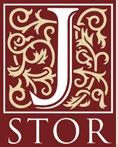
A dunelm.org email for life
Alumni fee scholarship
Postgraduate course discounts
Career development
Lecture series
Durham University merchandise

Plus local discounts and offers

•
•
•
•
•
•
•
•
dunelm.org.uk/benefits Durham University Alumni Magazine Dunelm 37
He explains the importance of his time at Durham and his motivation to give back.
“My legacy is a way of expressing my appreciation for the qualifications and experience that seven years in Durham gave me which served as a fine springboard to my subsequent career, all provided at no cost to me or my parents. Such an education and the associated benefits of a ‘Durham experience’ are no longer possible unless a student is willing to take on a substantial debt or has independent financial means, and I see the financial hurdles to be surmounted in getting a university education only getting higher in the coming years. I left Durham with both a trained mind and, to my great good fortune, a lifetime partner and I hope that my legacy will enable others to have the same start in their lives as I have had.”
What’s your legacy?
Many alumni and other supporters of the University have kindly made provision for a gift to Durham University after their death. The most popular type of legacy gift is a cash gift made through a will, but we also warmly welcome other ways to support the University financially, which donors might not have considered.
Pensions fall outside a person’s estate, which means that there is no need to alter your will in order for your pension to benefit Durham University after your death. The gift can be planned during your lifetime by nominating a beneficiary or beneficiaries in writing to the pension provider and it is tax efficient. Like legacy gifts made to Durham University through a will, a legacy gift from your pension to the University will be free of inheritance tax.
The University is fortunate to have been informed of such a provision by an alumnus who graduated with a Physics degree in the early 1960s from Grey College.
“I had put a significant sum into a selfinvested personal pension (SIPP) which I realised some years later I would not need. My family are well established financially and so I was in a position to give the SIPP assets to a cause that appealed to me. That proved to be Durham University and my desire to help future physics students.
“I placed a letter of bequest on file with my SIPP manager nominating Durham University. I currently make biannual donations to support research students and the gift will be used to continue my support of Durham physics scholarships.”
The donor completed a first degree at Durham, and then stayed on in Durham to complete a PhD followed by a brief spell as a staff member of the Physics Department, before leaving for a career in the City.
It is wonderful that the University community is able to count on such supportive alumni who are passing on their good fortune. The donor receives regular reports that give an idea of the profound impact of his current scholarship.
“I am incredibly thankful for all the opportunities this scholarship has provided me with. Undoubtedly the most valuable experience has been the chance to work with, learn from, and be part of an incredible community. This scholarship has been a fantastic experience, and has opened up many avenues for future careers that I could not have considered before.”
Reports from senior academic staff have been glowing, with excellent feedback on the academic standard of the award recipients. The donor’s pension gift will enable his contribution to Physics at Durham to continue into the future.
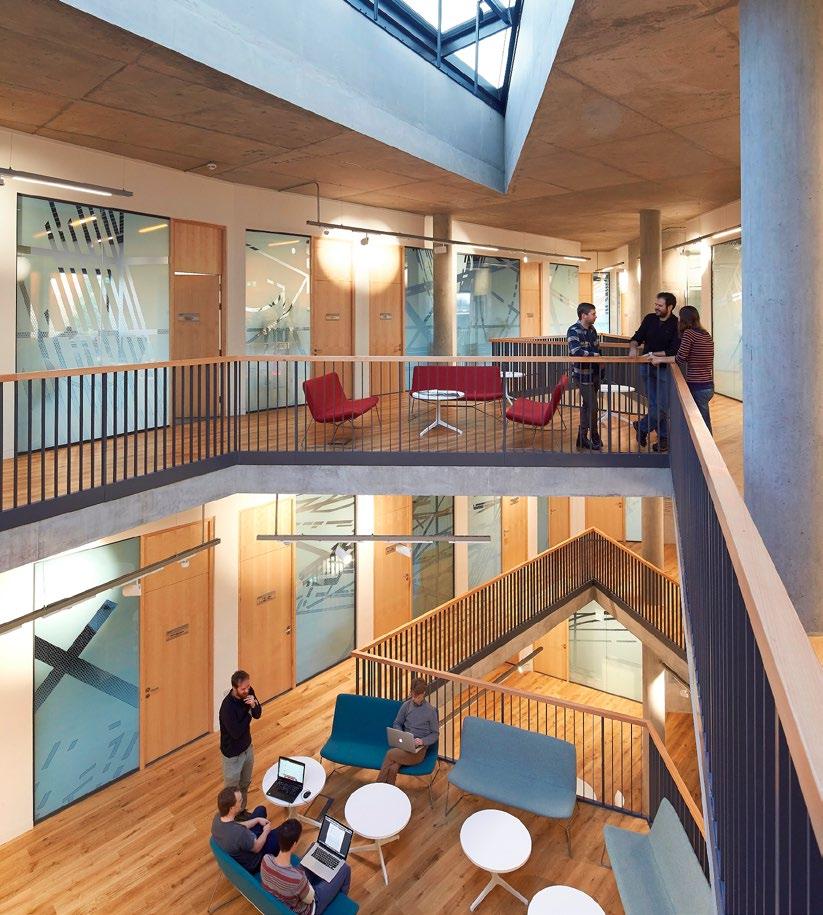
Would you kindly consider nominating the University to receive pension funds? Please contact the Legacy Team at Durham to discuss your plans in confidence. We recently received a gift from a pension, so we will be able to illustrate the concept using our recent experience, and describe the impact the gift is going to have.
Leaving a gift to Durham
Legacy
University community.
will or nominating the University
in
thank
Alumni 38 Dunelm
We would be delighted to hear from you. Issue 08 2022
“I was in a position to give the SIPP assets to a cause that appealed to me.”
gifts are hugely beneficial to our
If you would consider putting a gift
your
to receive your pension,
you. Please contact the Senior Development Manager for Legacies and Planned Giving, Louise McLaren (email louise.mclaren@durham.ac.uk; telephone 0191 334 6313).
Legacy Click here to find out more

Start September 2022: • Innovative new programme • One year full-time premium Masters • Designed for tomorrow’s leaders in energy • Scholarships available Find out more durham.ac.uk /business/mesm Master of Energy Systems Management Play a pivotal role in the Net-Zero energy revolution WARM/03/22/613
Are

Development and Alumni Relations Office Palatine Centre Durham University Stockton Road Durham DH1 3LE dunelm.org.uk durham.ac.uk W Dunelm – Durham University Alumni Community T @durhamalumni U Durham University Alumni F Dunelm – Durham University Alumni Community alumni.office@durham.ac.uk +44 (0)191 334 6305 Does Durham have your email address? Visit: dunelm.org.uk and update your details to be kept up to date with all things Durham. Keep in touch
you lost?
























 Sir Harry Evans
Sir Harry Evans







































 Guy Deacon
Guy Deacon



























